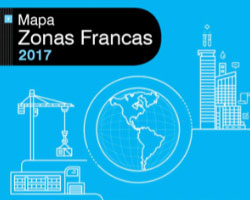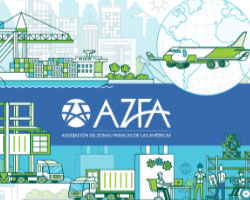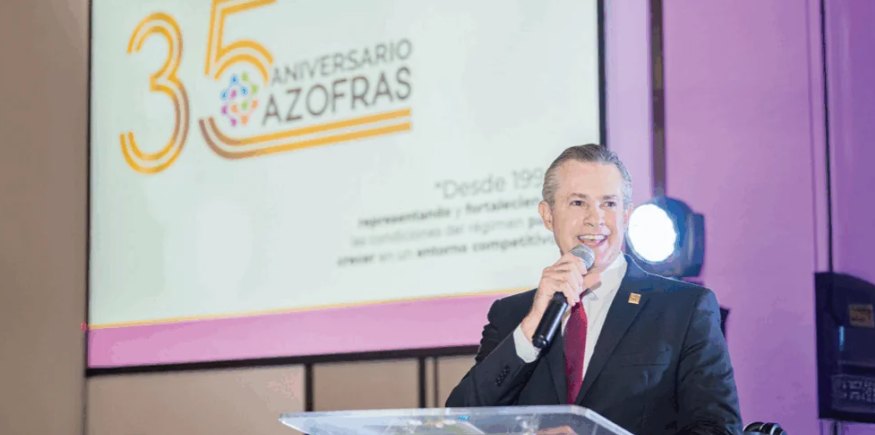
Zonas Francas generan más de 265 mil empleos y concentran el 74% de la inversión extranjera en Costa Rica
La Asociación de Empresas de Zonas Francas de Costa Rica (Azofras) celebra su 35 aniversario y reafirma su papel como motor del desarrollo económico y social del país.Actualmente, este régimen genera 265.571 empleos, entre directos e indirectos, compras locales que superan los $6.000 millones y exportaciones superiores a los $13.000 millones.También concentra el 74% de la inversión extranjera directa (IED) que llega al país, con un total de $3.720 millones canalizados en los últimos años. Asimismo, genera movilidad social, innovación y oportunidades en todo el territorio nacional.
Ver más
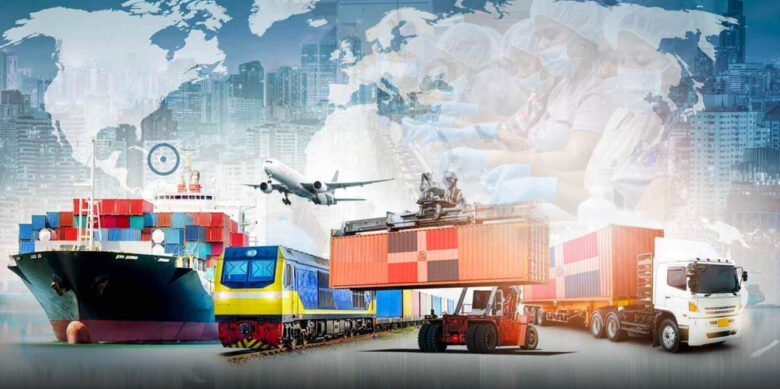
Zonas Francas en RD: Crecimiento histórico en exportaciones, empleo e inversión
Al cierre del año 2024, el sector de zonas francas en República Dominicana consolidó su papel como uno de los pilares fundamentales de la economía nacional. Con un notable crecimiento en infraestructura, inversión extranjera, generación de empleo y exportaciones, este modelo productivo reafirma su relevancia estratégica en el desarrollo económico del país. En 2024, las exportaciones del sector zonas francas alcanzaron un valor de US$8,425.9 millones, lo que representa un crecimiento del 5.9 % respecto al año anterior.
Ver más
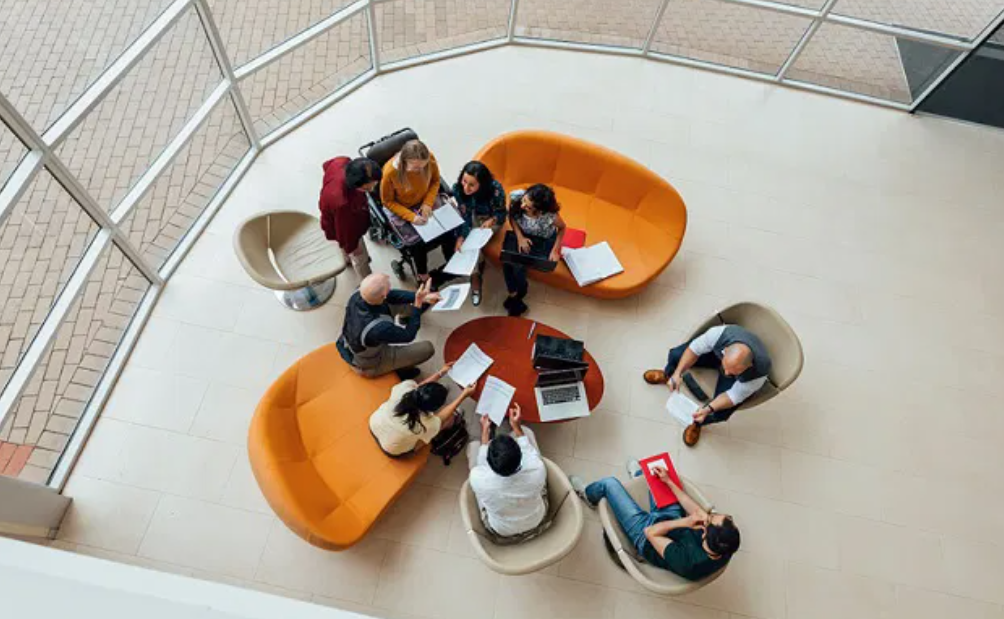
Zonas Francas en Costa Rica: el nuevo estándar que combina tecnología, sostenibilidad y experiencia
Las zonas francas se han consolidado como el motor de la economía costarricense. Más de 402 multinacionales operan bajo este régimen, generando alrededor de 200.000 empleos directos e indirectos y más del 60% de las exportaciones nacionales, según datos de CINDE. Sin embargo, en un entorno global cada vez más competitivo, los incentivos fiscales ya no son suficientes: el verdadero diferenciador está en los espacios de trabajo.Hoy las empresas no solo buscan metros cuadrados, sino entornos integrales capaces de potenciar la productividad, la innovación y el bienestar.
Ver más
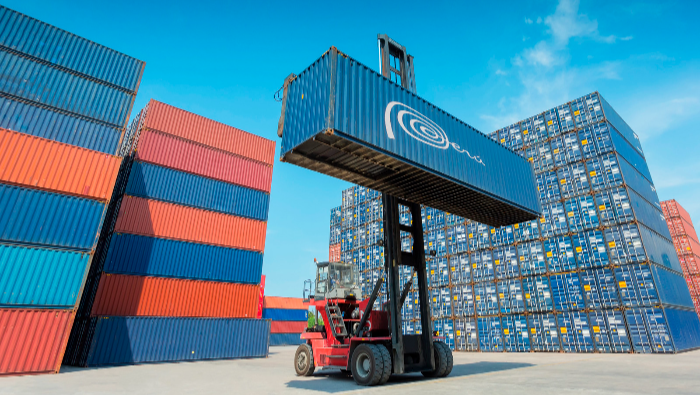
Aprueban nueva Ley de Zonas Económicas Especiales Privadas que promoverá nuevas inversiones y comercio exterior
El Ministerio de Comercio Exterior y Turismo (Mincetur) destacó la aprobación por mayoría, en el Pleno del Congreso de la República, del dictamen de la nueva Ley de Zonas Económicas Especiales Privadas (ZEEP), un hito que marca un paso estratégico en la promoción del desarrollo económico, la inversión privada y el comercio exterior en el Perú. Esta ley establece un marco normativo para que las futuras ZEEP operen bajo una administración privada, garantizando mayor captación de nuevas inversiones y propiciando la transformación productiva de la oferta exportable peruana.
Ver más
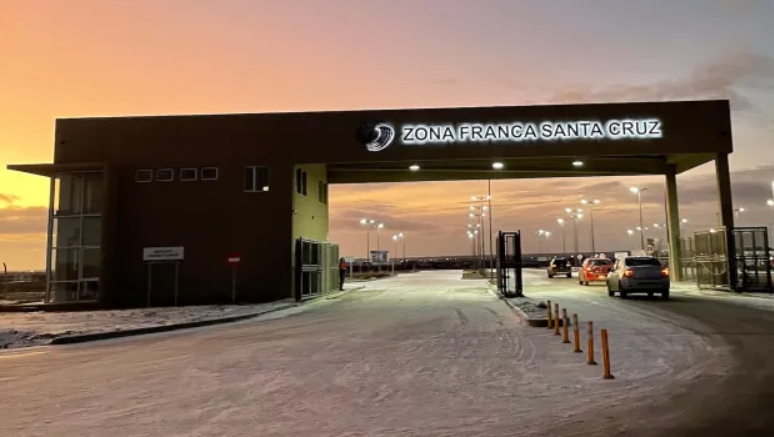
Zonas francas: piden modernizar la ley y potenciar la competitividad en Argentina
En el marco del Consejo Federal de Zonas Francas, representantes provinciales coincidieron en la necesidad de actualizar la normativa vigente y generar condiciones que permitan desarrollar plenamente su potencial exportador, logístico e industrial. Durante el encuentro del Consejo Federal de Zonas Francas, que se realiza tres veces al año en distintas provincias del país, se destacó la importancia de modernizar la Ley 24.331, vigente desde 1994, para adaptarla a las nuevas dinámicas comerciales y tecnológicas. Autoridades remarcaron que las zonas francas argentinas representan hoy menos del 4% de las exportaciones nacionales, muy por debajo de lo esperado en comparación con otros países de la región.
Ver más
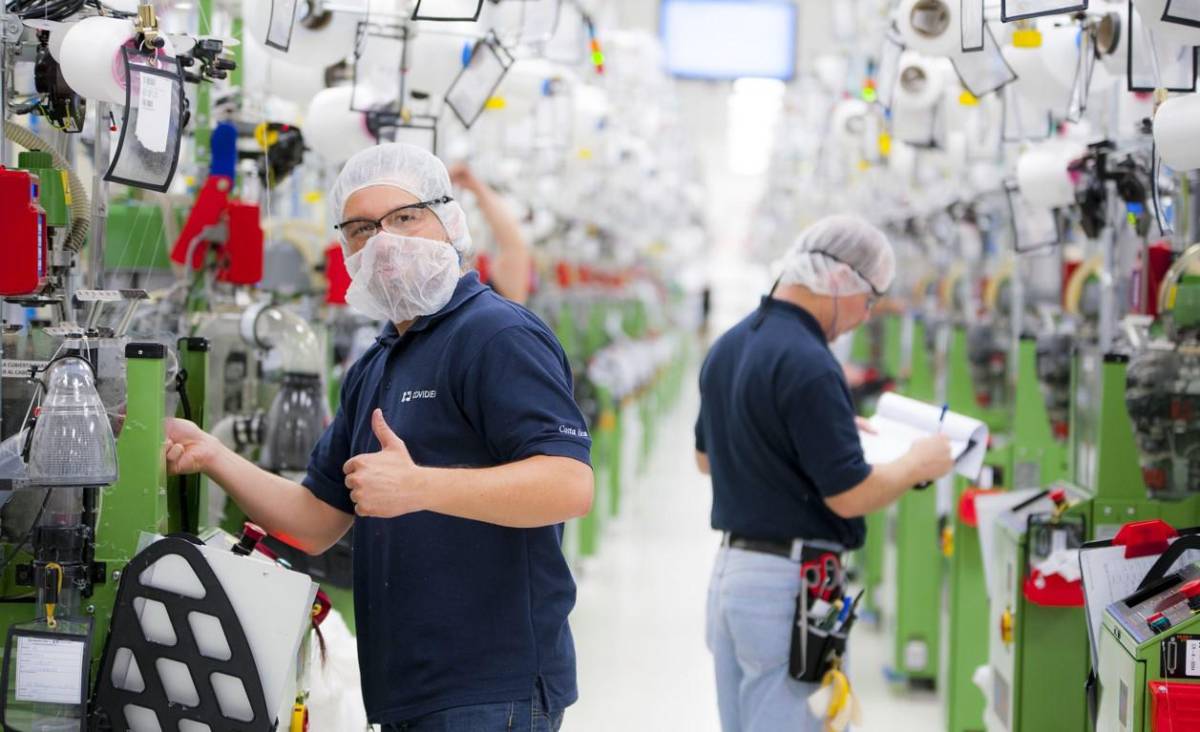
El 15 % del PIB y 74 % de la inversión en Costa Rica es por zonas francas
Las zonas francas representan el 15 % del del Producto Interno Bruto (PIB) de Costa Rica y atraen el 74 % de la inversión extranjera que ingresa a este país centroamericano, destacó un informe de la Promotora del Comercio Exterior (Procomer). De acuerdo con el estudio 'Zona Franca: 35 Años Construyendo Valor para Costa Rica', durante 2024 este modelo aportó US$13.893 millones a la economía costarricense, equivalente al 15 % del PIB. Además, registró US$6.014 millones en compras locales. El informe indica que desde su implementación en 1990, el régimen mantiene un crecimiento sostenido en su cobertura y alcance, pasando de 56 empresas en operaciones productivas a 626 en 2024, mientras que la contribución absoluta del régimen de zona franca con relación al PIB durante ese periodo, pasó del 1 % al 15 %.
Ver más
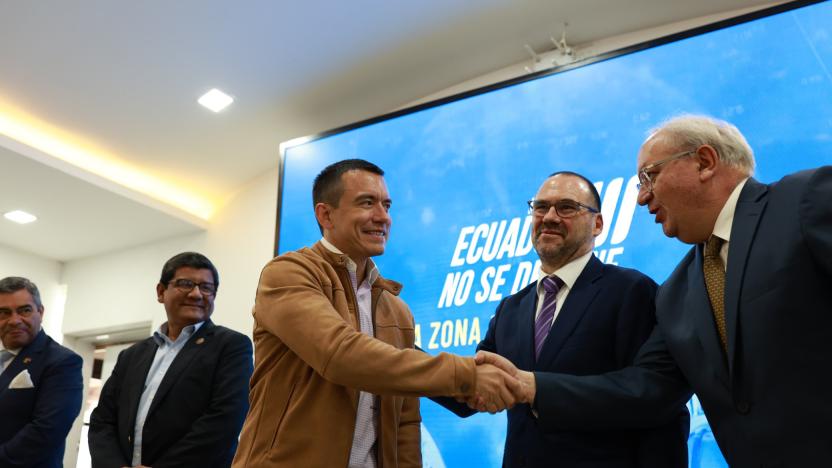
Ecuador tendrá su primera zona franca tecnológica
El presidente, Daniel Noboa, junto al ministro de Producción y Comercio Exterior, Luis Jaramillo se firmaron un memorando de entendimiento para la implementación de la primera Zona Franca Tecnológica en Ecuador, que se instalará en la ciudad de Cuenca. Durante el acto de presentación se destacó que este será un espacio diseñado para atraer inversión internacional y apoyar el emprendimiento digital. “El Ecuador tendrá su primera zona franca tecnológica y tengo la confianza y la tranquilidad de que las personas que la están apoyando, van hacer que sea un éxito total y un ejemplo no solo para el país sino para la región”, afirmó el presidente Noboa durante la presentación y firma del Memorando de Entendimiento.
Ver más
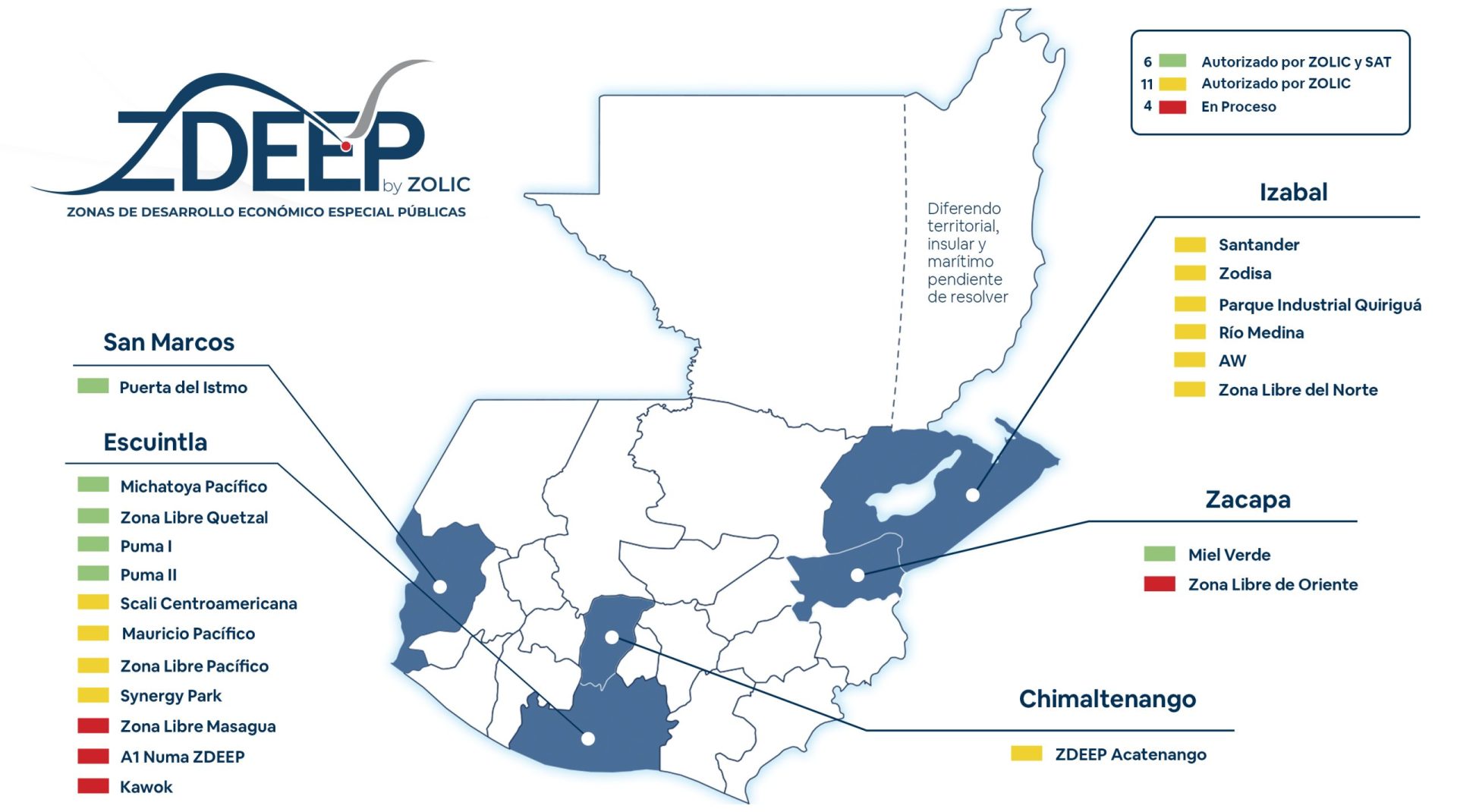
Zonas Económicas Especiales: el modelo que adoptó Guatemala
Hay ideas que transforman territorios y redefinen oportunidades. Tal es el caso de las zonas económicas especiales (ZEE), verdaderos catalizadores del desarrollo. Desde su creación en Shannon, Irlanda, en 1959, su éxito se ha multiplicado exponencialmente: más de 5400 zonas operan hoy en día en más de 140 países, atrayendo inversión, generando empleo y sirviendo no solo como plataformas logísticas, sino también como laboratorios para la innovación productiva y el comercio. El principio es simple, pero contundente: crear entornos con incentivos fiscales, bajo un marco regulatorio que impulse la competitividad y se convierta en un factor facilitador clave.
Ver más
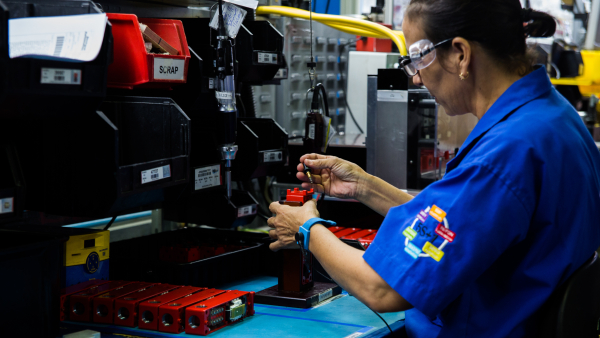
Zonas francas en RD generan cerca de 200,000 empleos formales
Las zonas francas en República Dominicana son vitales para el desarrollo de la economía nacional, ya que promueven la inversión extranjera, la exportación, la innovación tecnológica y la generación de empleos. Para 2024, este sector generó cerca de 200,000 empleos formales, impactando a más de 460,000 trabajos directos e indirectos a nivel nacional, según datos recientes del Ministerio de Industria, Comercio y Mipymes (MICM). Durante el evento “Zonas francas, zonas de oportunidades”, Claudia Pellerano, presidente de la Asociación Dominicana de Zonas Francas (Adozona), explicó que el país cuenta con 95 parques industriales, distribuidos en todo el territorio, donde operan 856 empresas, generando 197,458 empleos directos y con una inversión de US$7,735 millones.
Ver más
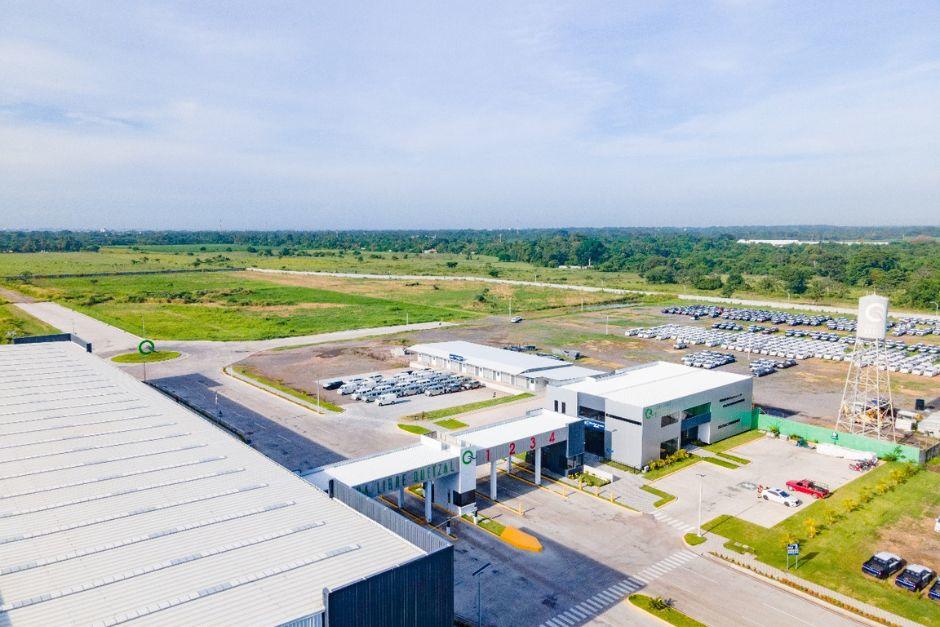
Zonas Francas en Guatemala: evolucionan a Zonas de Desarrollo Económico Especial
Las Zonas de Desarrollo Económico Especial Públicas, más conocidas como ZDEEP, se han convertido en un instrumento para atraer la inversión nacional y extranjera, promover el crecimiento económico y facilitar la instalación de operaciones industriales, comerciales, de servicios o mixtas, dentro de ecosistemas productivos que ofrecen beneficios fiscales para las empresas que se enlistan en este régimen.Guatemala cuenta actualmente con 17 ZDEEP autorizadas: seis en operación, once pendientes de aprobación por la Superintendencia de Administración Tributaria (SAT) y cuatro en evaluación. Christian Mayorga, presidente de la junta directiva de la Zona Libre de Industria y Comercio Santo Tomás de Castilla (ZOLIC), explicó que este régimen integra en una sola plataforma la generación de empleo formal, la atracción de inversión, la expansión de infraestructura productiva y el fortalecimiento logístico.
Ver más
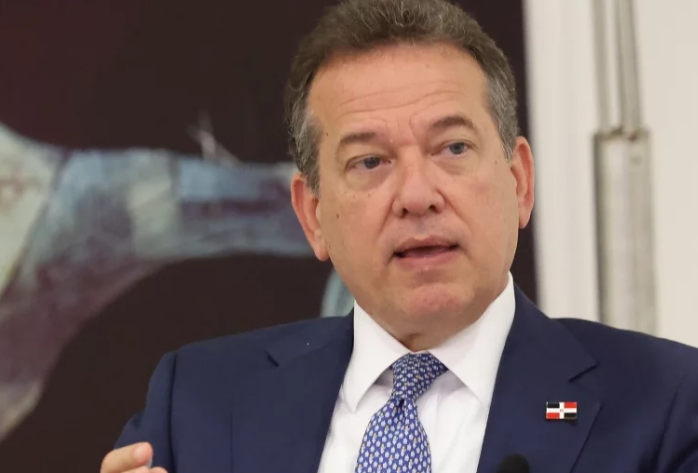
Dispositivos médicos fabricados en zonas francas dominicanas se venden en 132 países
De acuerdo con Samuel Conde, empresario del sector zonas francas y logística, al indicar que en el país operan varias plantas que fabrican esos productos bajo condiciones controladas y con estrictos controles de partículas, certificadas internacionalmente por organismos que exigen altos estándares de calidad, tanto de Estados Unidos como de Europa y Japón. Destacó que en el país funciona un centro global de manufactura de este tipo de dispositivos, entre los que destacan equipos para realizar diálisis, tomar muestras, marcapasos y otros instrumentos médicos, incluyendo hilos dentales. El empresario resaltó que el sector se ha transformado y seguirá transformándose, y se mostró optimista de que estará listo para asumir la producción de semiconductores con el apoyo del Gobierno dominicano.
Ver más
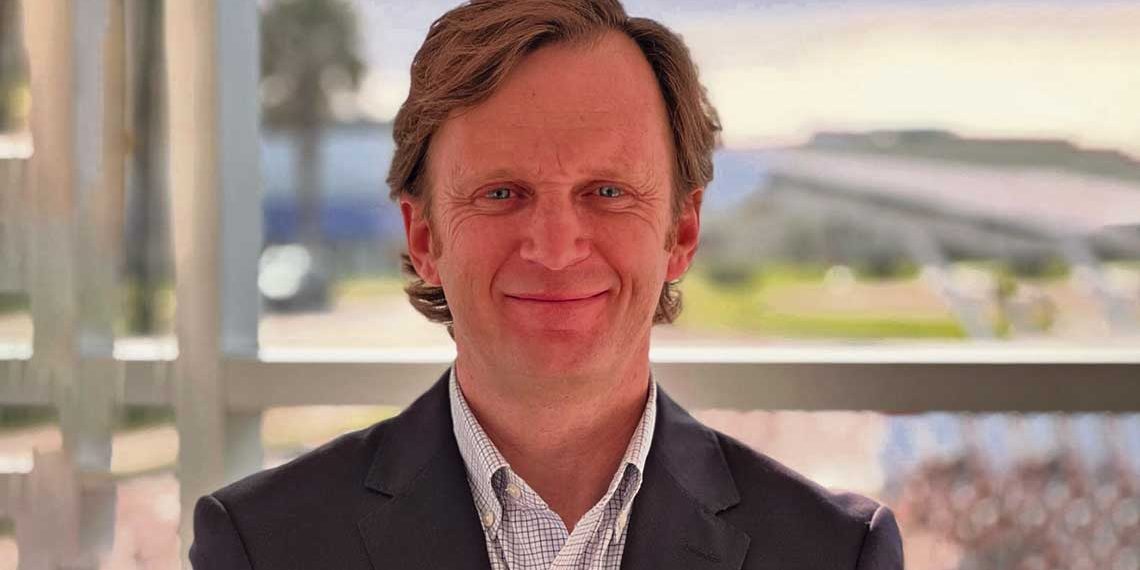
Régimen de zonas francas es clave para la economía, pero reclama cambios urgentes para mejorar la competitividad
Con más de 100 años de historia, el régimen de zonas francas es fundamental para captar inversión extranjera y generar empleo. Además, representa más de un tercio de las exportaciones. En entrevista con La Mañana, el presidente de la Cámara de Zonas Francas del Uruguay, Enrique Buero, detalló los desafíos que el sector enfrenta actualmente como problemas de competitividad y altos costos. También se refirió a las oportunidades en nuevos mercados y sectores como ciencias, inteligencia artificial y fintech. El régimen de zonas francas es el principal instrumento de captación de inversión extranjera que tiene nuestro país con una contribución muy significativa en su economía. Es un régimen con más de 100 años, fruto de décadas de una exitosa articulación público-privada y además una política de Estado.
Ver más
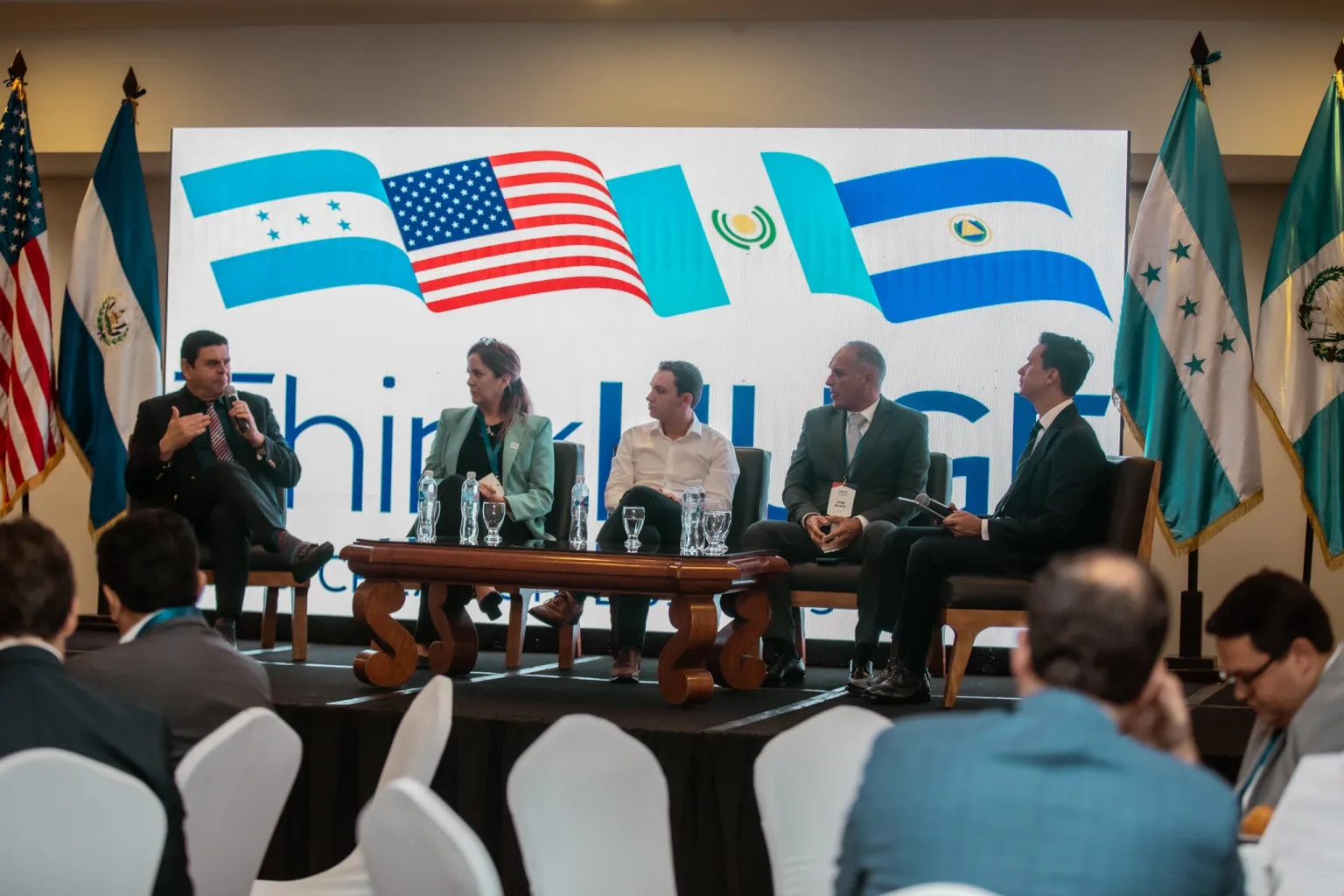
Nuevas rutas, zonas francas y energía: la fórmula para atraer inversión a Guatemala
Juan José Daboub, uno de los fundadores del grupo empresarial HUGE Business and Investment Council, asegura que Guatemala y sus vecinos del Triángulo Norte enfrentan una encrucijada marcada por la incertidumbre global, pero también por oportunidades sin precedentes. “La clave está en adaptarse rápido”, afirma Daboub, quien compara a las economías centroamericanas con bicicletas capaces de sortear obstáculos y maniobrar con agilidad, a diferencia de los grandes “buques” como Estados Unidos o China.
Ver más
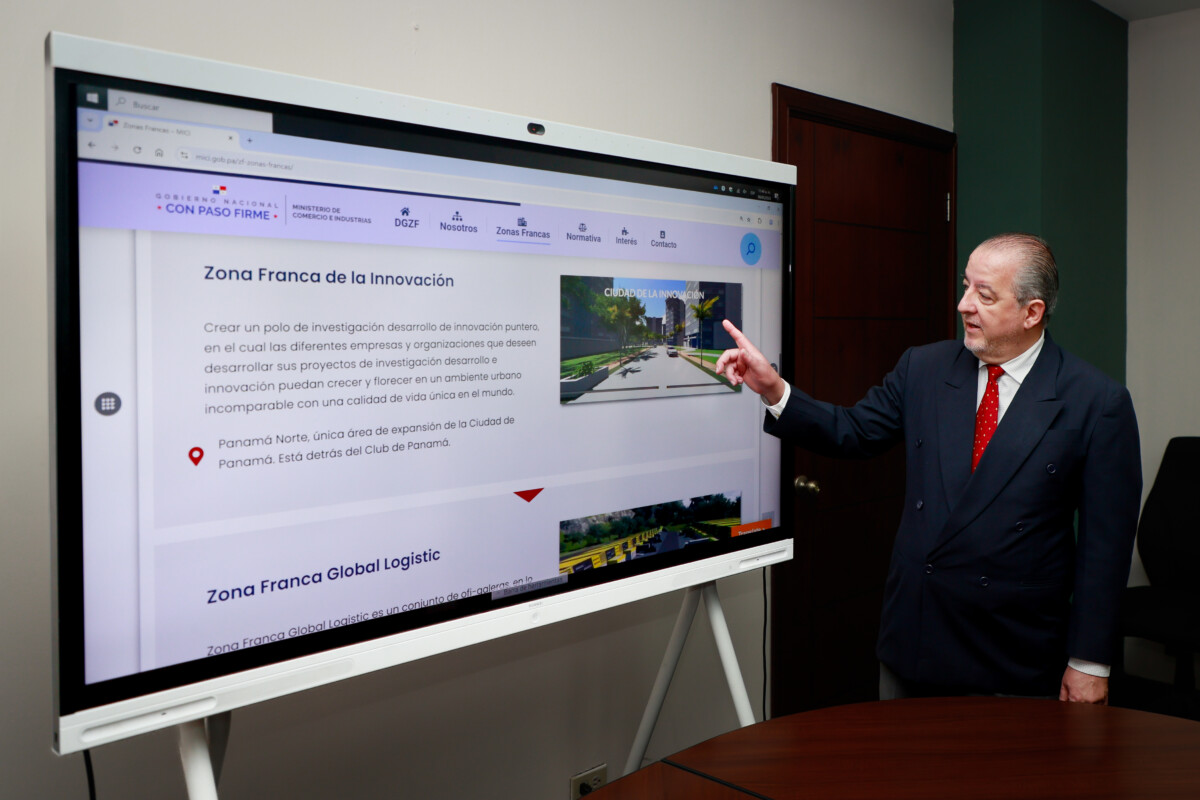
Zona Franca de la Innovación contribuye a transformar el ecosistema regional
El director general de Zonas Francas del MICI, Rodrigo Jaén, destacó que este tipo de iniciativas están alineadas con los objetivos del Gobierno Nacional y de la Comisión Nacional de Zonas Francas: fomentar sectores estratégicos, promover el desarrollo sostenible y fortalecer a Panamá como un referente regional en innovación. Durante la actual administración del presidente José Raúl Mulino, ya se han aprobado tres nuevas zonas francas y se han autorizado dos ampliaciones, reafirmando el compromiso del Gobierno Nacional con este régimen como motor de crecimiento económico, atracción de inversión y generación de empleo. Estos avances consolidan una visión de país que apuesta por el conocimiento, la tecnología y la diversificación económica como pilares del desarrollo sostenible.
Ver más
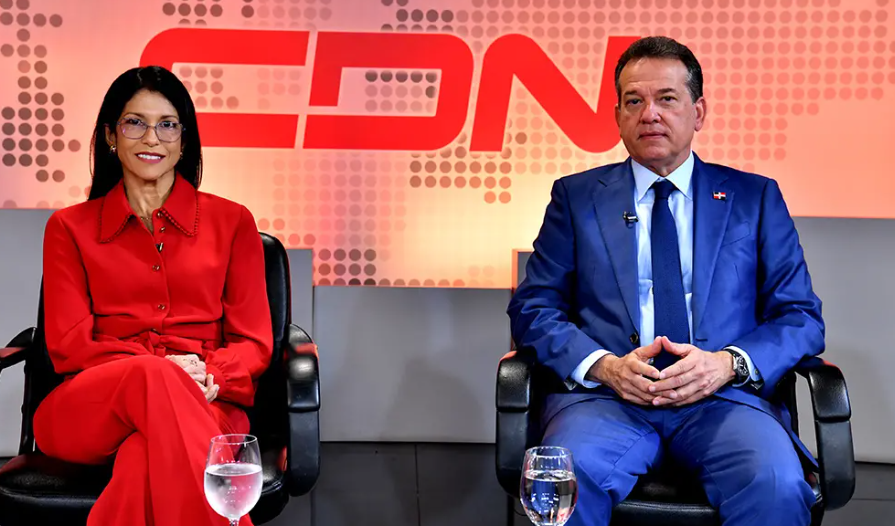
El sector zona franca consolida en este país su fortaleza económica
República Dominicana sigue reafirmando su posición como un centro estratégico para la inversión y la exportación en la región, impulsado por la solidez del sector zonas francas, que en 2024 lideró las exportaciones nacionales con un total de US$8,425 millones.
Este logro, junto con la generación de más de 198 mil empleos directos y una inversión acumulada de US$7,735.7 millones, refleja un modelo que ha evolucionado con el tiempo, que se diversifica y se adapta a los nuevos requerimientos de la economía global. Con presencia en 28 de las 32 provincias del país, 94 parques industriales y 843 empresas que operan bajo este régimen –de acuerdo con un corte numérico de cierre del pasado año-, el sistema de zonas francas no solo ha logrado descentralizar el empleo formal, sino que ha demostrado ser un motor clave de desarrollo regional.
Ver más
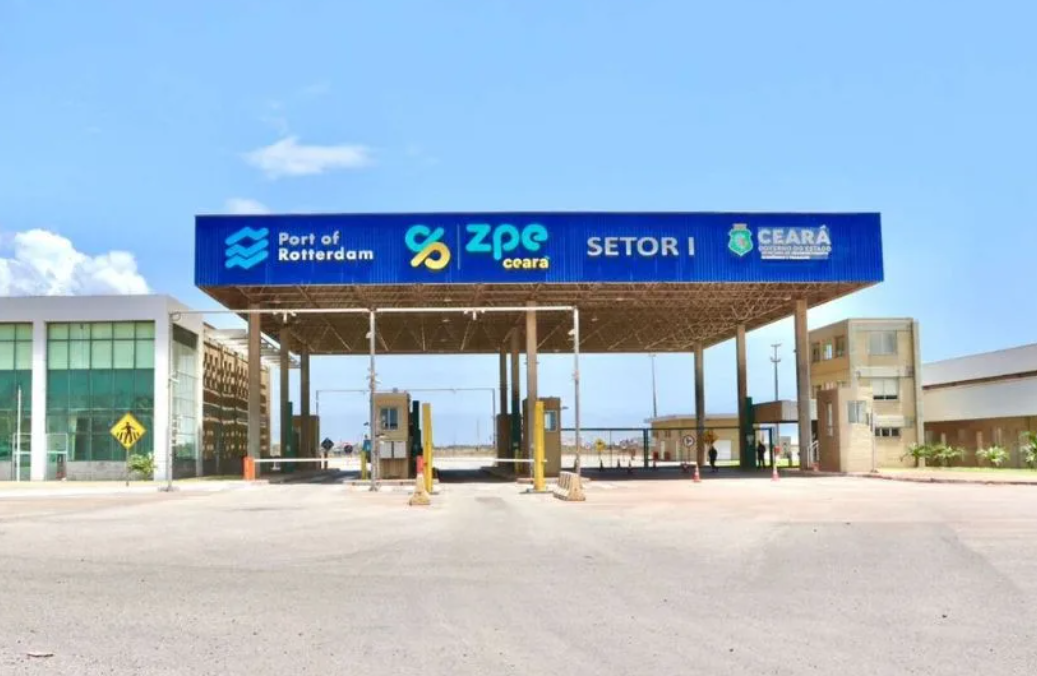
El Gobierno publica una propuesta legislativa que obliga a utilizar energías renovables en los centros de datos de las ZFE.
Se publicó la Medida Provisional (MP) No. 1.307/2025, que exige que los centros de datos instalados en las ZPE (Zonas Francas de Exportación) utilicen energía eléctrica procedente de fuentes renovables, siempre que los proyectos de generación no estén todavía en funcionamiento en la fecha de publicación de la MP. Las ZFE son áreas delimitadas dentro del país, creadas para promover la producción orientada a la exportación. Ofrecen beneficios fiscales, cambiarios y administrativos a las empresas que operan en estas regiones, con el objetivo de impulsar la competitividad internacional de la industria brasileña.
Ver más
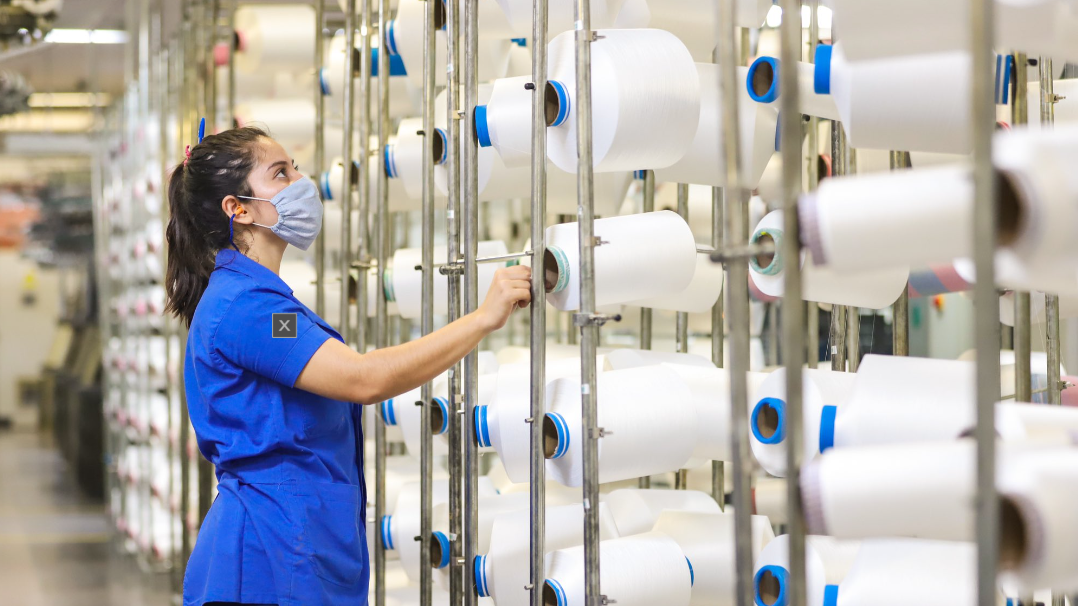
El Salvador tiene más de 150 empresas bajo el régimen de zonas francas
El Salvador tiene 155 empresas que operan bajo el régimen de zonas francas o reguladas, un modelo que ofrece incentivos fiscales, indicó Miguel Ángel Chévez, presidente de MACH Consultores, durante un foro de la Corporación de Exportadores de El Salvador (Coexport). Con datos de los ministerio de Economía de cada país, Chévez detalló que en el país hay 17 parques, de los cuales 14 se encuentran en operación y cuatro se encuentran en proceso. La primera zona franca de El Salvador se creó como propiedad del gobierno, ubicada en San Bartolo, en 1974. En 1998 se aprobó una ley para regular este rubro que abarca actividades de manufactura textil, agroindustria, plásticos, papel, farmacéuticos y otros sectores.
Ver más
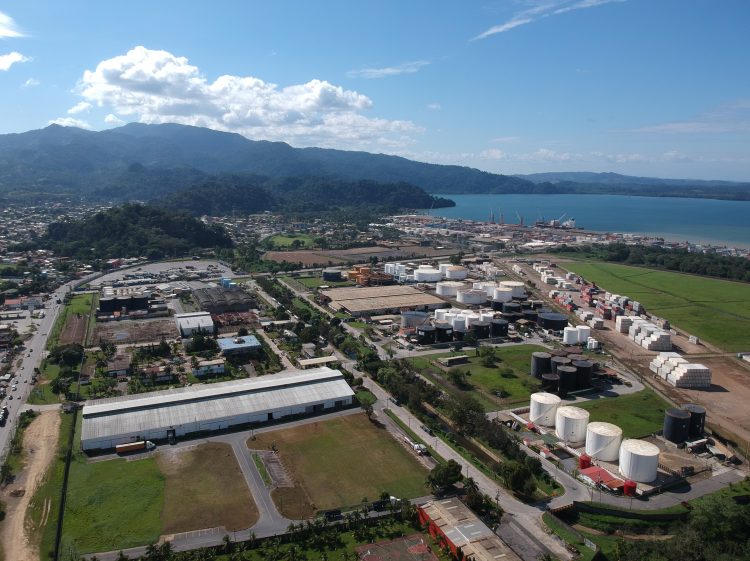
ZOLIC y ZDEEP: Impulso A La Inversión Y Competitividad En Guatemala
Con 52 años de trayectoria, la Zona Libre de Industria y Comercio “Santo Tomás de Castilla” (ZOLIC) es pionera en Guatemala en el régimen de Zonas Libres. Desde su Predio Fiscal en Izabal, actualmente opera con 51 usuarios activos, lo que demuestra su solidez como plataforma de inversión, empleo y desarrollo económico. Gracias al Decreto 30-2008, ZOLIC ahora tiene la facultad de autorizar y habilitar las Zonas de Desarrollo Económico Especial Públicas ZDEEP, una expansión estratégica del modelo que busca descentralizar oportunidades y responder a la creciente demanda de espacios competitivos para la atracción de nuevas inversiones.
Ver más
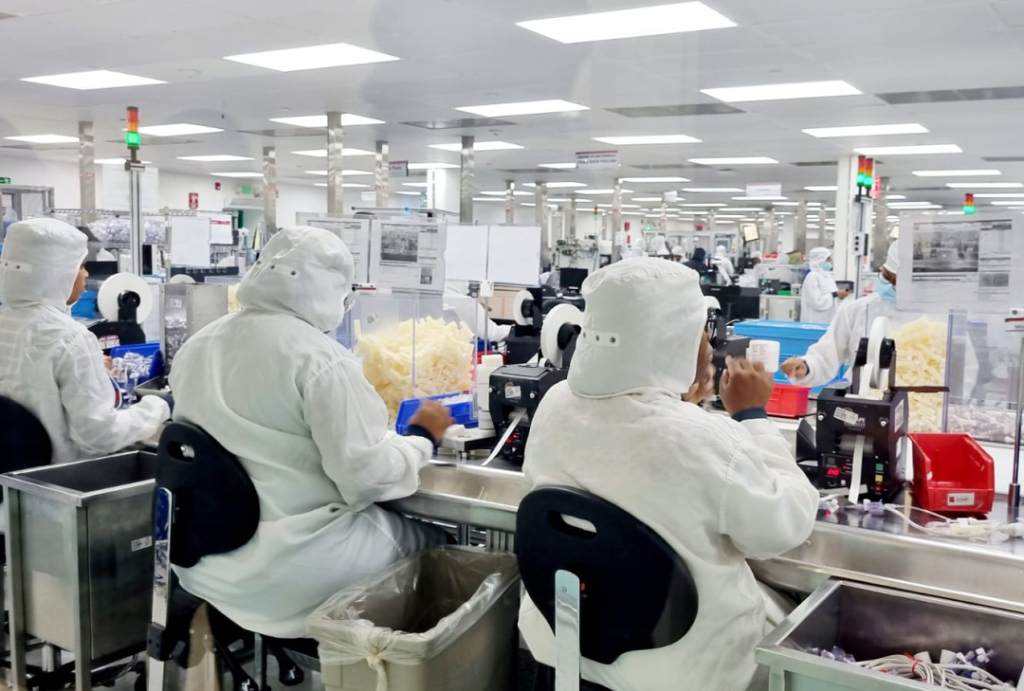
Sector zonas francas lidera exportaciones en República Dominicana
Entre enero y junio, las ventas al exterior bajo este régimen alcanzaron los cuatro mil 279.9 millones de dólares, y solo el mes pasado totalizaron 771.96 millones de dólares, un 2.8 por ciento más que en similar período de 2024. Los productos médicos y farmacéuticos representan los principales bienes exportados, a los que siguen los equipos eléctricos y electrónicos, tabaco y sus derivados, y la manufactura textil. Estados Unidos continúa como el principal destino de estas ventas, con el 72.2 por ciento del total, seguido por Puerto Rico (4.1 por ciento), Países Bajos (3.5 por ciento) y Haití (3.04 por ciento).
Ver más
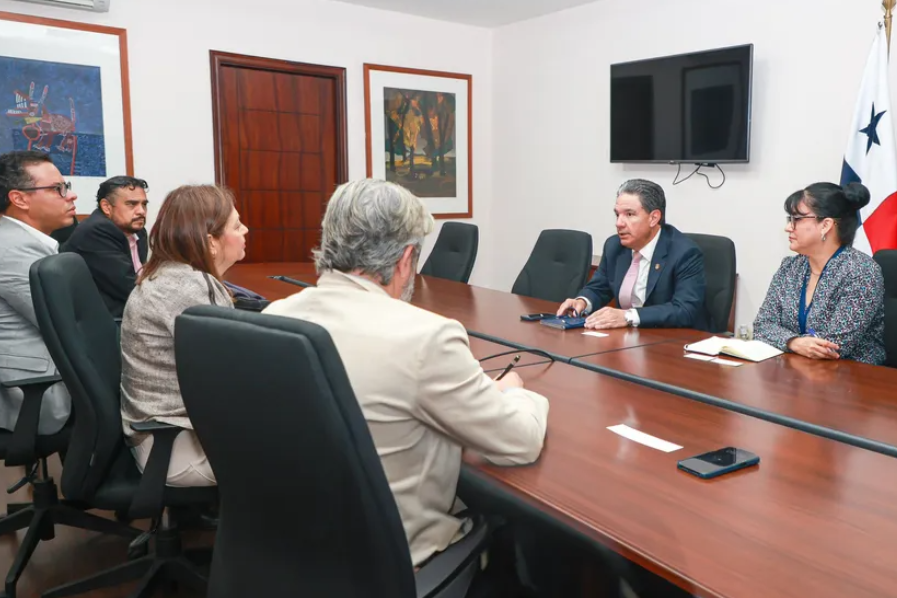
Panamá y CAF refuerzan cooperación para impulsar zonas francas y logística regional
El viceministro de Industrias y Comercio de Panamá, Eduardo Arango, sostuvo una reunión de alto nivel con representantes del CAF – Banco de Desarrollo de América Latina y el Caribe, esto con el objetivo de fortalecer la estrategia logística del país y consolidar a las zonas francas como polos de valor agregado e inversión. Durante el encuentro, se discutieron oportunidades de cooperación técnica y se evaluaron líneas de trabajo conjunto orientadas a realizar estudios especializados que respalden al Gobierno Nacional en la transformación de las zonas francas en herramientas clave para impulsar el comercio regional y atraer inversión extranjera.
Ver más
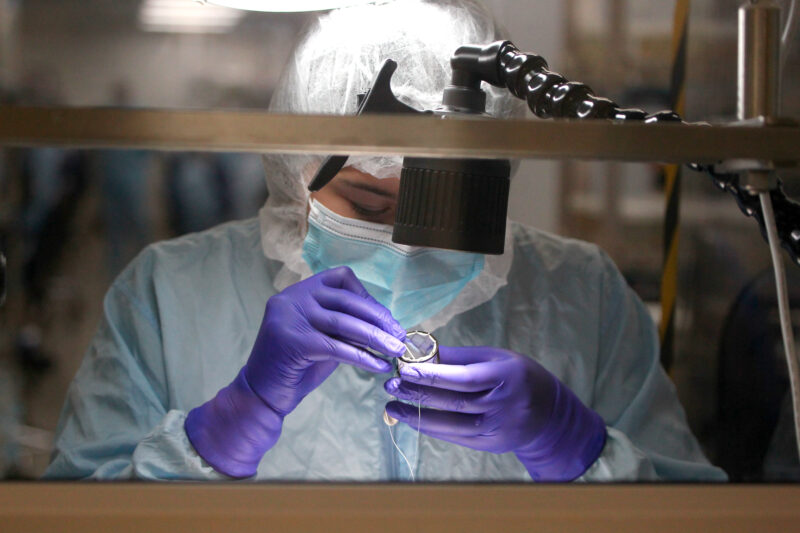
Implementos médicos impulsan el crecimiento económico
El aumento en la producción manufacturera de implementos médicos y dentales impulsó al Régimen Especial de Zonas Francas a un crecimiento de doble dígito, con una variación del 12,3 %. Así lo señala el Índice Mensual de Actividad Económica correspondiente al mes de mayo, publicado por el Banco Central de Costa Rica (BCCR). El sector de manufactura registró un aumento del 20,7 %, el mayor crecimiento desde noviembre de 2021, impulsado por las ventas al exterior de productos como válvulas cardíacas y catéteres. Este sector pasó de un aumento del 4,2 % en su producción en diciembre de 2024 a un 1,9 % en el resultado más reciente del Banco Central.
Ver más
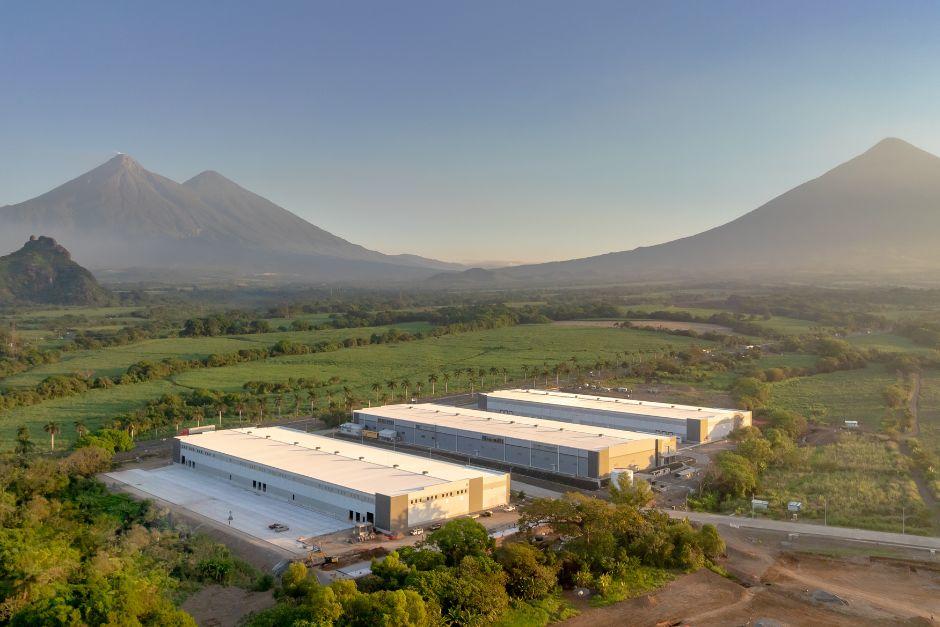
Parques industriales impulsan la transformación económica del país
Ante las nuevas tendencias globales como el nearshoring, caracterizadas por el interés de empresas internacionales en relocalizar operaciones cerca del mercado estadounidense, estos complejos encuentran en Guatemala condiciones propicias para crecer. Christian Mayorga, presidente de la Zona Libre de Industria y Comercio Santo Tomás de Castilla (ZOLIC), explica que uno de los principales esfuerzos de la entidad se centra en facilitar los procedimientos para inversionistas interesados en instalarse en parques industriales autorizados por esta institución.
Ver más
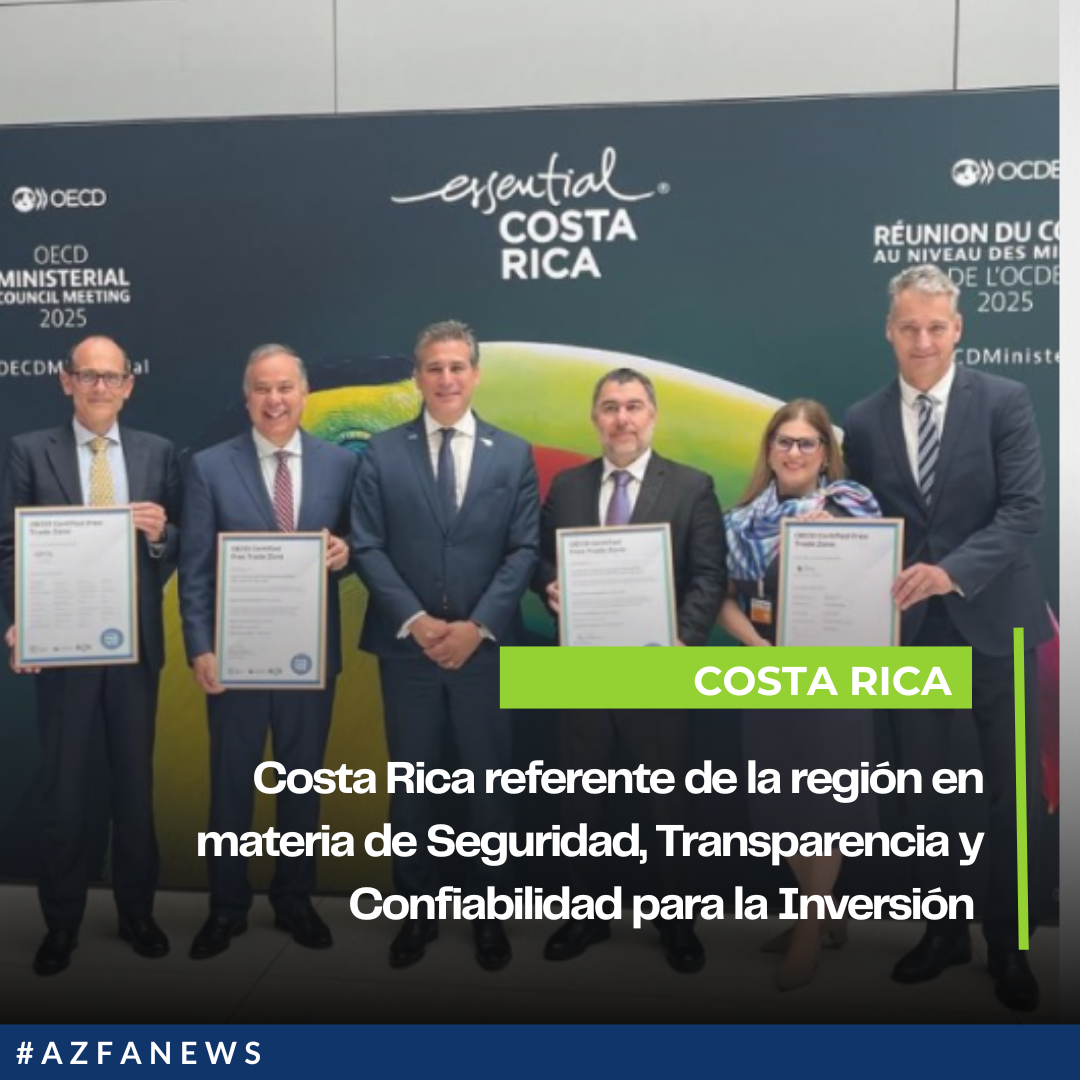
Zonas francas Coyol y La Lima reciben histórica certificación de la OCDE
Costa Rica se convirtió en el primer país latinoamericano en recibir la certificación de la OCDE para zonas francas seguras y transparentes, al reconocer a La Lima Free Zone y Coyol Free Zone por sus buenas prácticas en el comercio internacional. Ambos parques empresariales fueron seleccionados directamente por la Organización para la Cooperación y el Desarrollo Económicos (OCDE). Ello como parte del proyecto piloto global que define estándares internacionales contra el comercio ilícito en zonas francas. Según la OCDE, el nuevo esquema de certificación mide el grado de transparencia, cooperación y control de estas zonas. El objetivo es fortalecer la confianza internacional en aquellos regímenes que operan bajo altos estándares de gobernanza.
Ver más
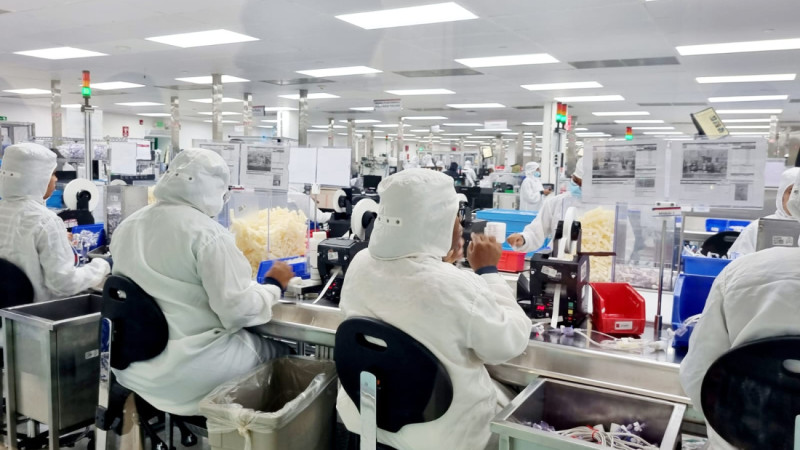
El país se posiciona como nuevo “hub” de manufactura
República Dominicana se está consolidando como una alternativa estratégica para la manufactura de empresas estadounidenses que buscan reducir costos, diversificar sus cadenas de suministro y sortear las tensiones comerciales con países como China y México. Este auge se debe a una combinación de factores que incluyen estabilidad política, cercanía geográfica con Estados Unidos, mano de obra calificada y un robusto sistema de zonas francas, según un reciente reportaje publicado por el medio estadounidense CNN. Según datos de la Fundación de Innovación en Tecnología e Información, citados por CNN, cerca del 20% de la inversión extranjera se dirige hoy al sector manufacturero, solo superado por el turismo.
Ver más

Inclusión de centros de datos en zonas francas de Brasil podría ser crucial
En otro paso destinado a reforzar el potencial en grandes centros de datos, Brasil incluyó el procesamiento y la transmisión de datos entre los nuevos servicios permitidos en las zonas francas industriales (ZFI). Según la legislación brasileña, las ZFI son polos industriales que ofrecen beneficios fiscales, administrativos y cambiarios exclusivos a las empresas que producen bienes, principalmente para la exportación. Se trata de zonas de libre comercio que permiten la importación, almacenamiento, manipulación, fabricación o reconfiguración de bienes y su reexportación.
Ver más
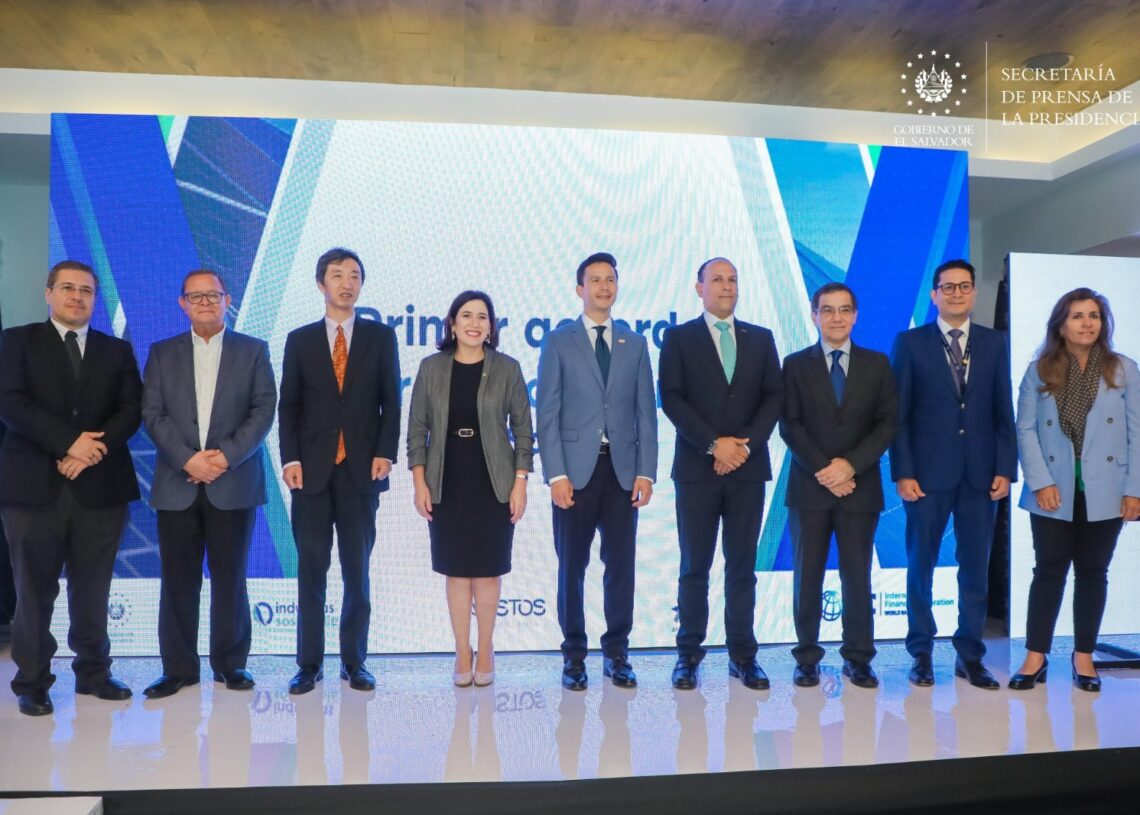
Cinco empresas industriales son certificadas por cumplir estándares ambientales
Como parte del Acuerdo de Producción Limpia de Parques Industriales, una alianza público-privada, este miércoles fueron certificadas cinco empresas por cumplir con estándares ambientales en sus operaciones industriales; estas son: Compañía Eléctrica de Occidente, Fruit of the Loom planta Lamatepec, Fruit of the Loom planta Joya de Cerén, League Central America y Zonkd. La iniciativa fue liderada por el Ministerio de Economía, comenzó en mayo de 2023 y contó con el apoyo de siete instituciones gubernamentales. Participaron empresas exportadoras instaladas en el American Industrial Park, una zona franca desarrollada por Aristos Inmobiliaria, que actuó como promotora del sector privado dentro del acuerdo.
Ver más

Impulsan buenas prácticas legales y tributarias en zonas francas durante conversatorio de AmCham
Con el objetivo de promover un mejor aprovechamiento del régimen de zonas francas y fortalecer la atracción de inversión extranjera, el director nacional de Zonas Francas del Ministerio de Comercio e Industrias (MICI), Rodrigo Jaén, participó como expositor en el conversatorio “Inversión Extranjera en Panamá: Aspectos Legales y Tributarios del Régimen de Zona Franca”, organizado por la Cámara Americana de Comercio e Industrias de Panamá (AmCham Panamá).
Ver más
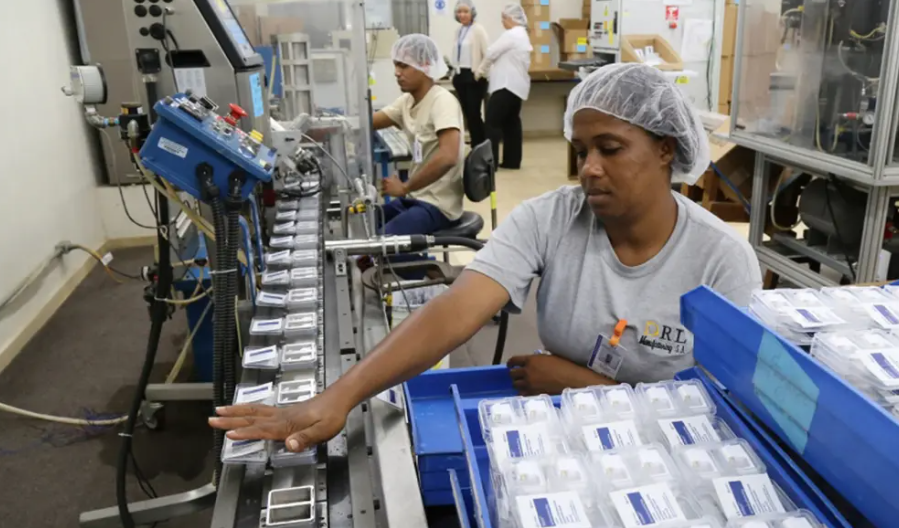
Zonas francas le suman más de RD$174 mil MM al PIB de RD desde 2007
El aporte de las zonas francas al Producto Interno Bruto (PIB) de la República Dominicana alcanzó los RD$232,696.3 millones en 2024, según datos del Consejo Nacional de Zonas Francas de Exportación (CNZFE). Esta cifra representa un crecimiento absoluto sostenido a lo largo de 18 años, partiendo de RD$58,296.4 millones en 2007, pero revela también una participación relativa constante en torno al 3 % del PIB nacional. En 2007, el PIB dominicano ascendía a RD$1.45 billones, de los cuales el 4.0 % correspondía a las zonas francas. Desde ese año hasta 2024, el PIB se ha quintuplicado, alcanzando los RD$7.4 billones, mientras que el valor agregado de las zonas francas se multiplicó por cuatro. No obstante, su participación dentro del total ha mostrado un ligero descenso, al estabilizarse entre 3.0 % y 3.5 % en los últimos diez años.
Ver más
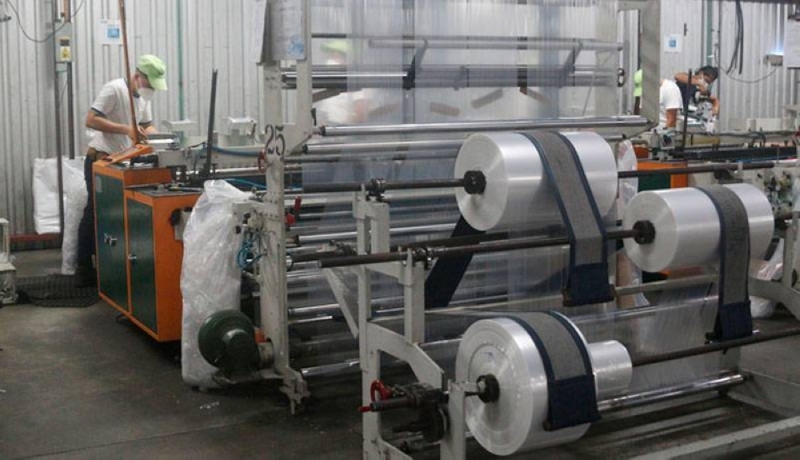
Industriales propone nuevas zonas francas de alimentos, energía y plástico en el oriente del país
El Consejo Industrial de El Salvador propone crear nuevas zonas francas en el oriente del país, enfocadas en la elaboración de alimentos, bebidas y productos plásticos, así como generación de energía eléctrica.Esta es una de las metas contempladas en el 'Plan de Desarrollo Industrial 2025-2029', lanzado este jueves por el Consejo que representa a 26 sectores de la dinámica económica, el cual dibuja 12 grandes objetivos para la reindustrialización del país.
Ver más
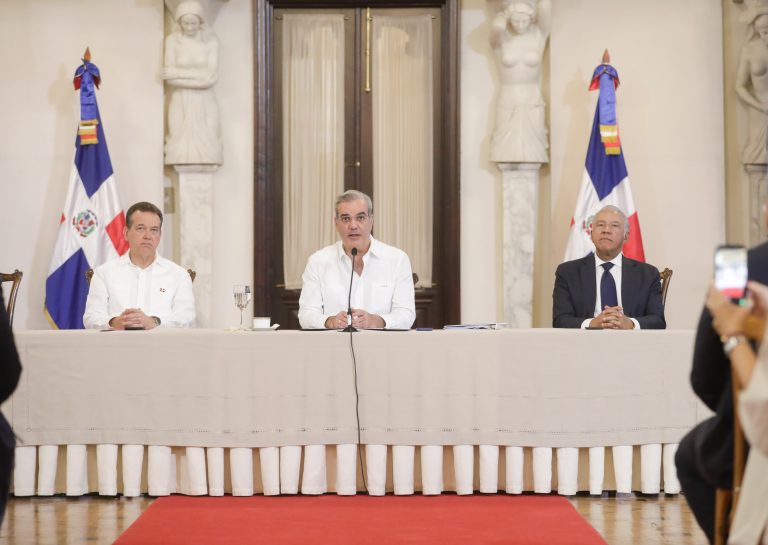
Exportaciones dominicanas marcan récord: Abinader destaca salto de 23.6% y expansión global
El presidente Luis Abinader declaró este miércoles que el dinamismo, crecimiento y aumento de las exportaciones del país es debido a la creación de condiciones propicias y al impulso de una cultura exportadora sustentada en educación, innovación y sostenibilidad. Estas declaraciones fueron ofrecidas por el mandatario al encabezar el acto del III Encuentro Presidencial: Avances del Plan Nacional de Fomento a las Exportaciones (PNFE) 2020-2030, realizado en el salón Las Cariátides del Palacio Nacional.
Ver más
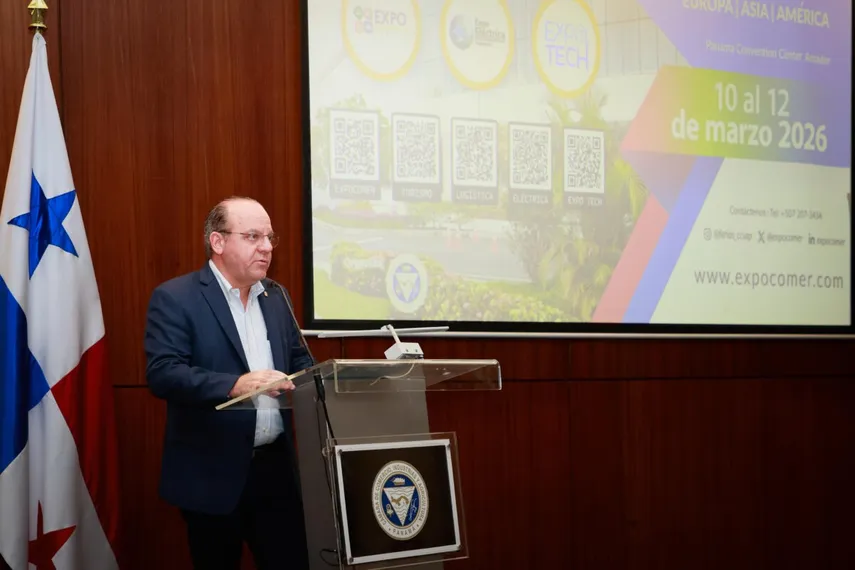
MICI y CCIAP impulsan exportaciones y zonas francas en alianza conjunta
Durante la jornada, el director nacional de Promoción de Exportaciones del MICI, Eric Dormoi, presentó cifras alentadoras sobre el comportamiento del sector. El Ministerio de Comercio e Industrias (MICI) y la Cámara de Comercio, Industrias y Agricultura de Panamá (CCIAP) celebraron el segundo encuentro de su ciclo de diálogos estratégicos, esto con el objetivo de fortalecer el ecosistema exportador del país y promover el desarrollo de las zonas francas. “Agradecemos el respaldo constante de la Cámara, que ha sido clave en estos esfuerzos. Hoy contamos con 16 zonas francas activas y un sector exportador que muestra dinamismo y compromiso”.
Ver más
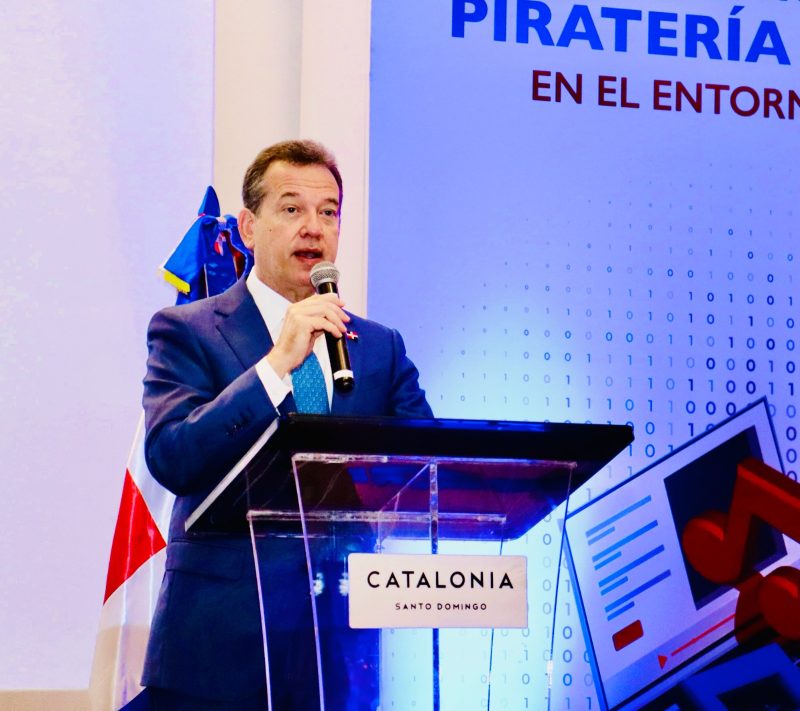
Ministro Bisonó asegura sector Zona Franca va en constante crecimiento
El ministro de Industria, Comercio y Mipymes, Víctor -Ito- Bisonó aseguró este lunes que el sector Zona Franca va en constante crecimiento y aseguró que el mismo registra 200 mil empleos directos en cuatro años. “Es un sector que va creciendo”, dijo Bisonó indicando que la agenda del presidente se encuentra la inauguración de dos naves nuevas en uno de los parques de Santiago, como muestra de ello. «Cada cierto tiempo se inaugura un parque nuevo o varias compañías que vienen».“Hay tres mega parques de más de un millón de metros cuadrados que se están ubicando en la región este” dijo Bisonó, añadiendo que próximamente darán el primer picazo.
Ver más
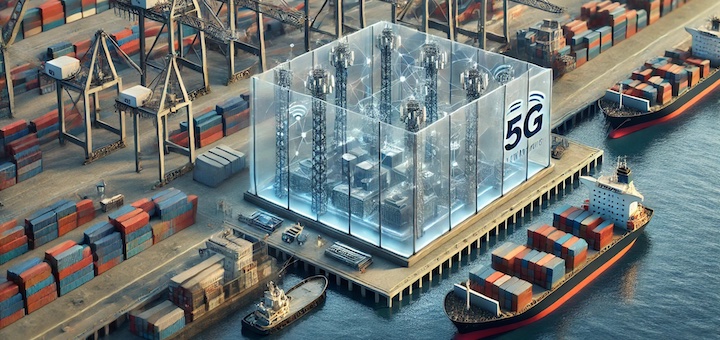
Brasil continúa promoviendo redes privadas 5G, ahora en zonas francas
El gobierno de Brasil continúa tomando decisiones para que las redes privadas 5G provoquen un verdadero impacto en el entramado productivo. Es la Agencia Nacional de Telecomunicaciones (Anatel) la que busca este objetivo, razón por la que, de tanto, sale con alguna idea nueva para concretar esas aspiraciones. Ahora, la propuesta apunta a promover expeirencias pilotos de redes 5G en las Zonas Francas de Exportación (ZFE). La idea fue lanzada por el superintendente de subvenciones y recursos de servicios de la Anatel, Vinícius Caram, quien anticipó que se apoyarán los pilotos de redes privadas 5G en estas áreas. Lo enmarcó en un escenario de colaboración entre operadoras, startups y la industria en general.
Ver más
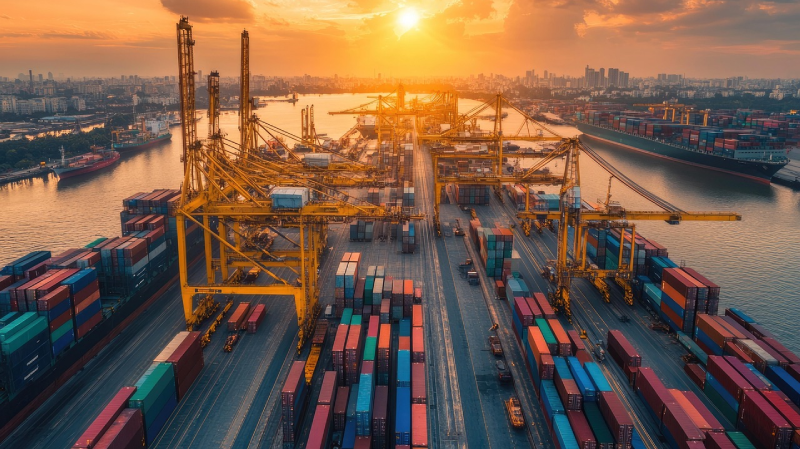
Zonas francas: por cada dólar exonerado, Uruguay recibió casi 10 y el sector prevé seguir creciendo
En entrevista con CRÓNICAS, el titular de la Cámara de Zonas Francas dijo que, si bien el sector aún aguarda los resultados oficiales de 2023 y 2024, cuenta con múltiples relevamientos que realizó junto a Ceres que mostraron, por ejemplo, que “entre 2014 y 2021 el país recaudó 7,4 dólares en promedio por cada dólar exonerado, con una tendencia al alza ya que en 2021 fue 9,7 dólares”, y que según el último dato disponible realiza una “contribución al PIB de 6,6%”. Buero también destacó “claras expectativas de crecimiento” entre actores del sector y un “aumento sostenido de la participación de las zonas francas en las exportaciones del país, que en 2022 ya alcanzaban el 34% compuesto por un 50% de servicios, 35% industria y 15% comercio”, un incremento que “es de esperar que siga en aumento” propulsado por la celulosa y por el sector de servicios.
Ver más

¿Qué recomiendan las zonas francas para evitar mayor caída de Inversión Extranjera?
Entre enero y marzo, el país captó $921 millones en IED, una reducción del 25% en comparación con el mismo periodo del 2024, cuando ingresaron $1.235 millones, según cifras del Banco Central de Costa Rica. La Asociación de Empresas de Zonas Francas de Costa Rica (AZOFRAS) atribuye este frenazo a varios factores que debilitan la competitividad nacional, entre ellos, el tipo de cambio bajo, los elevados costos de energía eléctrica y las cargas sociales que enfrentan las compañías. “Para mantener y fortalecer este liderazgo como motor clave —tanto en exportaciones como en atracción de IED— es fundamental que se aborden de forma estratégica diversos factores que inciden directamente en la competitividad del país”, advirtió AZOFRAS en una declaración ofrecida a este medio.
Ver más
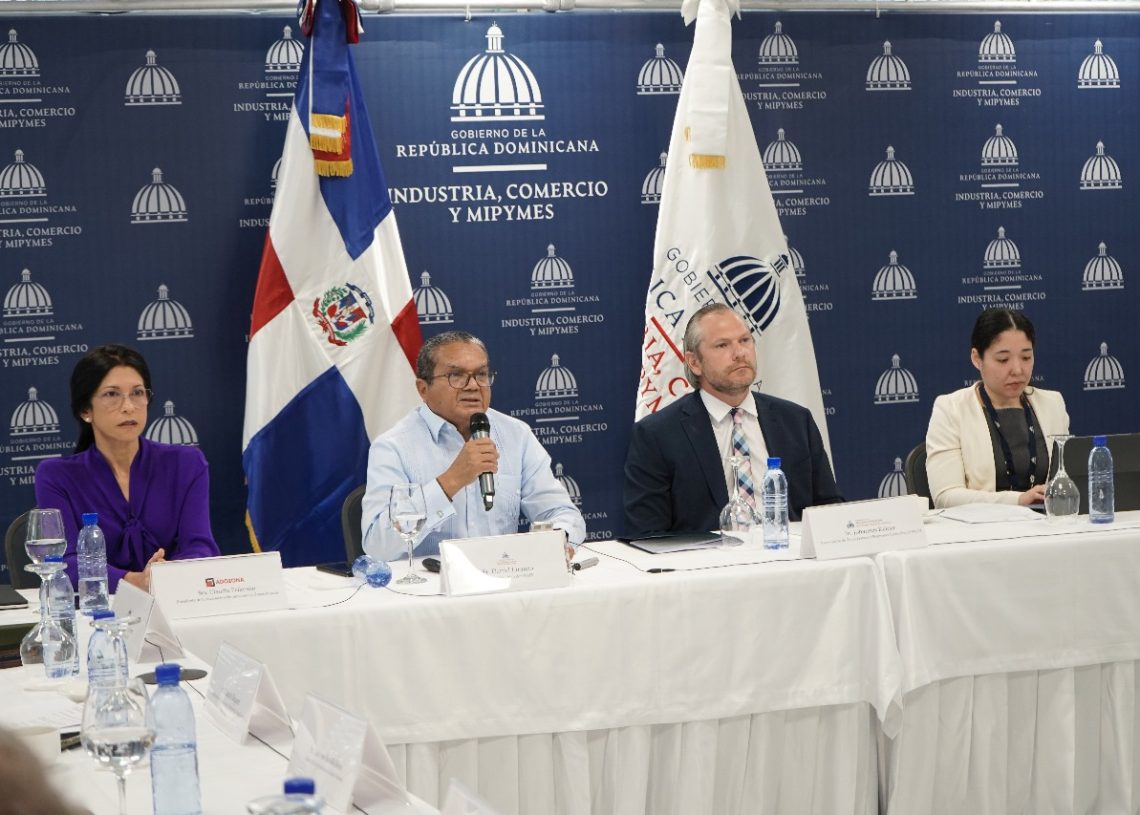
Aprueban 11 nuevas empresas y un parque industrial de zonas francas
El Consejo Nacional de Zonas Francas de Exportación (Cnzfe) aprobó los permisos de instalación para 11 nuevas empresas de zonas francas, las cuales proyectan la generación de 1,162 empleos directos con una inversión estimada que supera los US$14.16 millones. El director ejecutivo del Cnzfe, Daniel Liranzo, destacó la aprobación de un nuevo parque de zonas francas, el cual proyecta una inversión aproximada de US$4.88 millones, y contempla la creación de 527 empleos directos, ampliando así las oportunidades laborales y el desarrollo económico del país.
Ver más
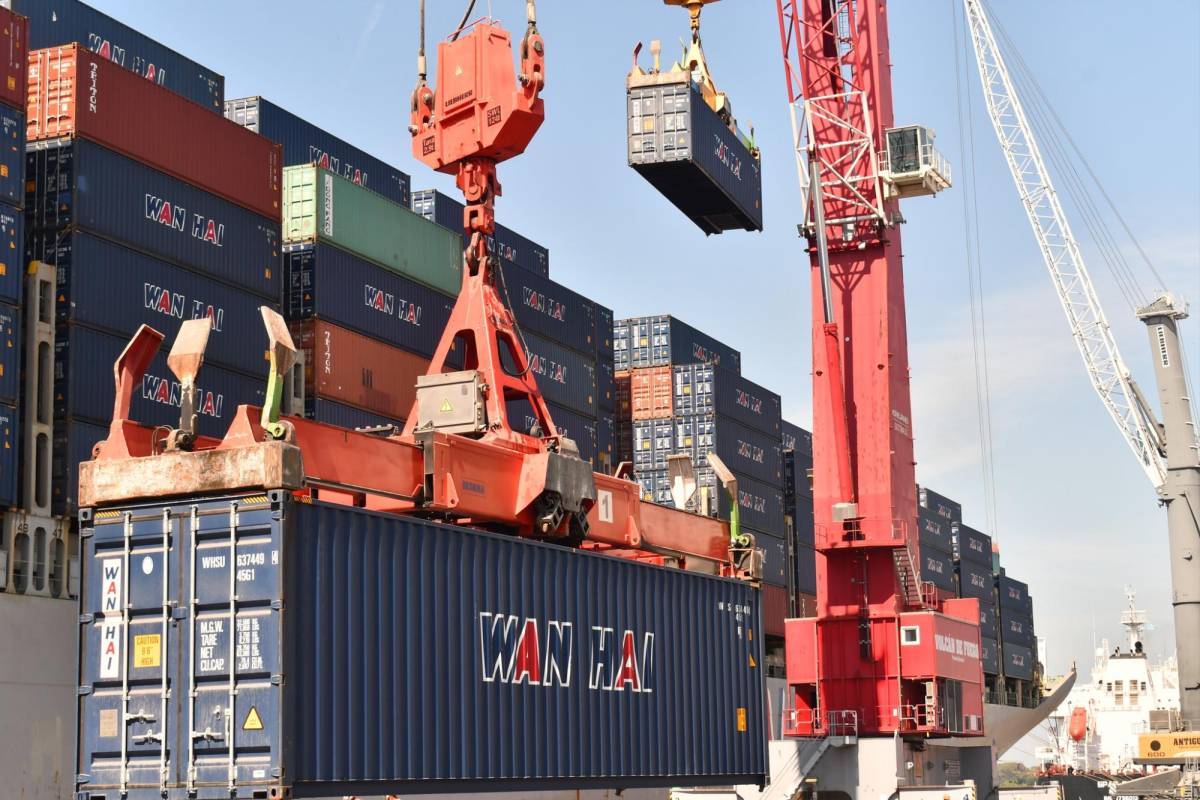
Exportaciones de mercancías de Nicaragua crecieron 13.8 % en primer trimestre
En el primer trimestre de 2025, el valor de las exportaciones totales (mercancías + zona franca) de Nicaragua fue de US$2,074.3 millones, lo cual significó un aumento de 7.8 % con respecto al mismo período del año pasado (US$1,924.3 millones). Del total exportado, el 59.2 % (US$1,228.4 millones) correspondieron a exportaciones de mercancías, las cuales reflejaron un incremento interanual de 13.8 %; y el 40.8 % correspondiente a bienes de zona franca (US$845.9 millones), resultaron similares a las del primer trimestre de 2024, reporta el Banco Central de Nicaragua (BCN).
Ver más
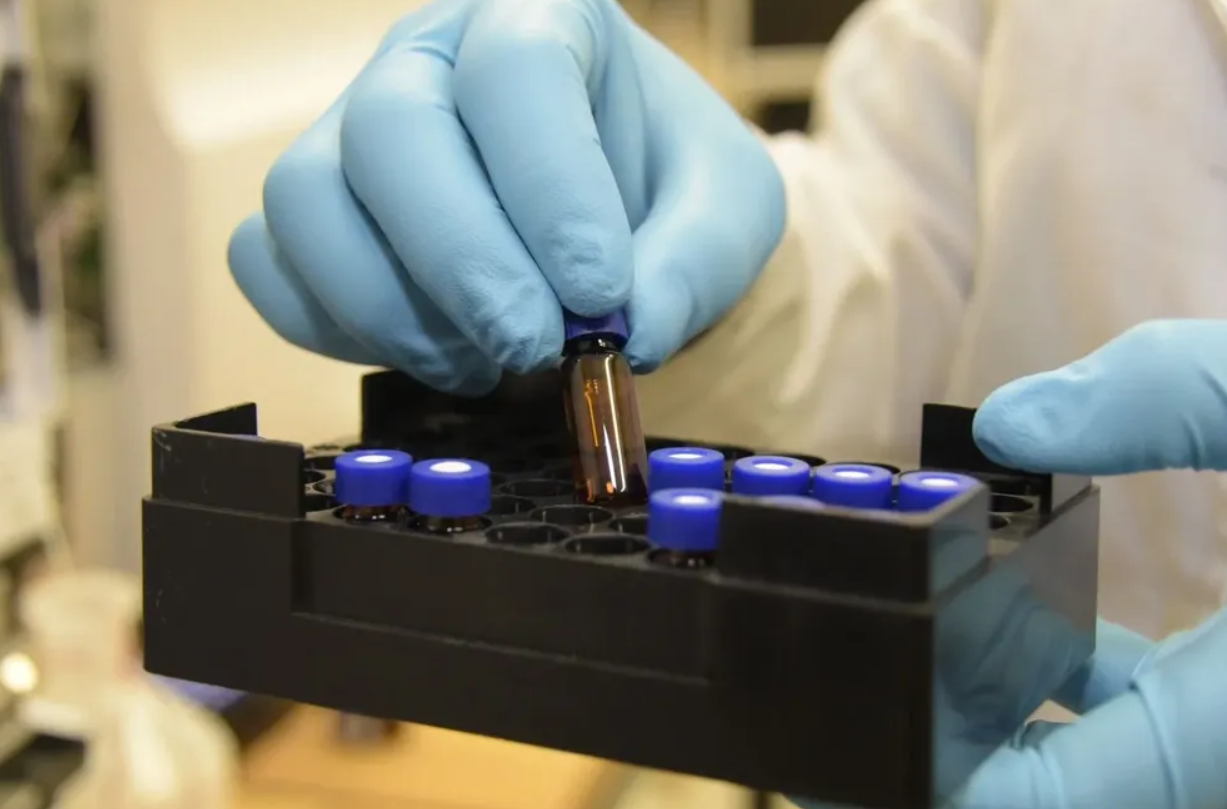
La industria que exportó US$ 362 millones en 2024 desde Uruguay y cuenta con una importante participación de empresas extranjeras
l mercado de los servicios y productos asociados a la salud experimenta una marcada tendencia al crecimiento a nivel mundial, impulsada por el crecimiento de la población mundial, el aumento de la esperanza de vida y el envejecimiento.Uruguay no es ajeno a este dinamismo y el sector muestra un crecimiento exponencial en el país en las últimas décadas, según un informe de Uruguay XXI. Este muestra que actualmente la industria farmacéutica emplea directamente a casi 7.800 personas y consta de un tejido empresarial de más de 175 empresas.
Ver más
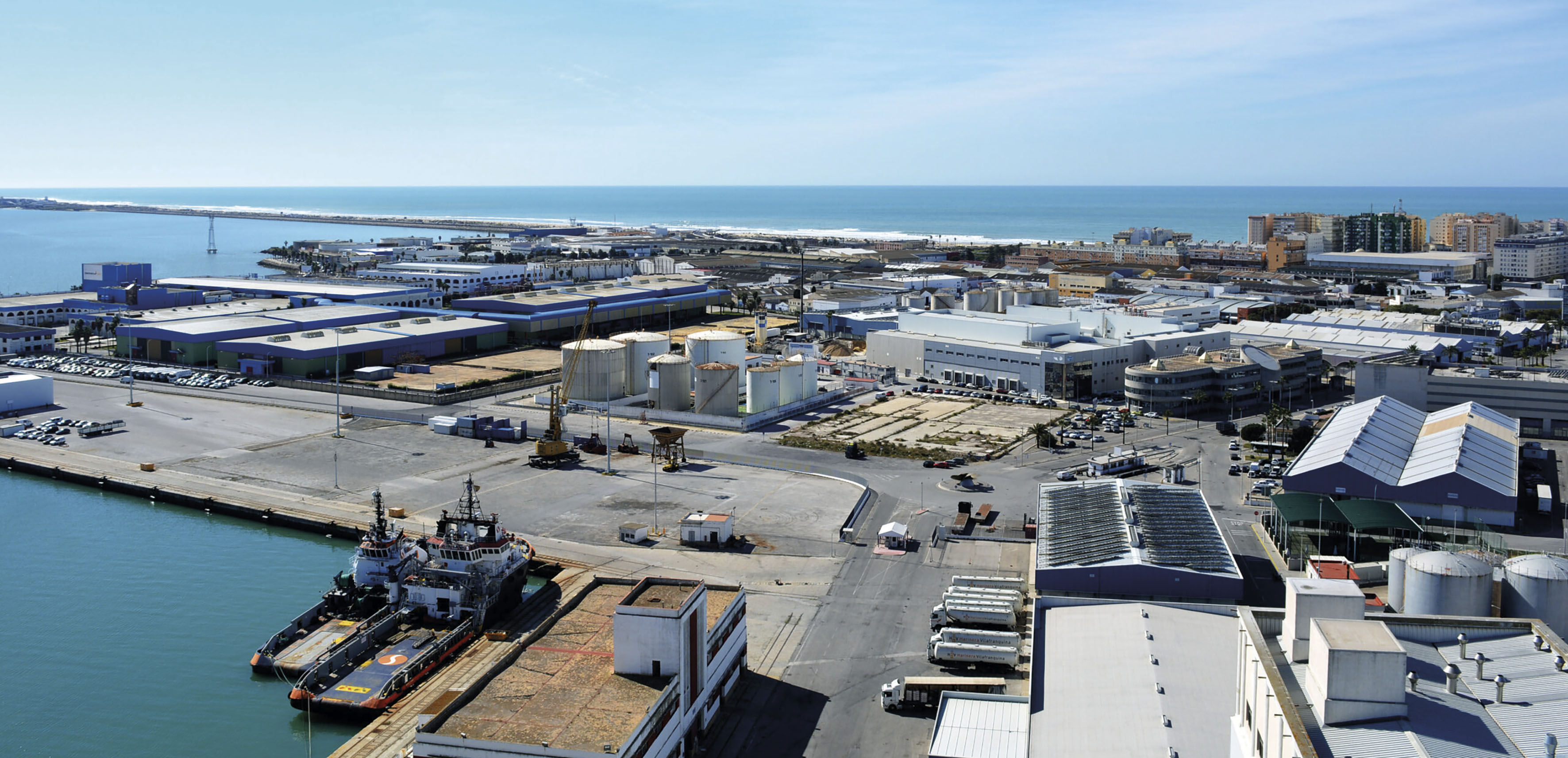
Navegando hacia el progreso
Las zonas francas han desempeñado un papel clave en el desarrollo económico y comercial de España. Se trata de áreas geográficas delimitadas en las que se aplican beneficios fiscales y aduaneros con el objetivo de fomentar el comercio internacional, atraer inversiones y potenciar la industrialización. Pueden operar empresas de diversos sectores, tanto nacionales como extranjeras (ya sea con NIF nacional o a través de representantes), que requieran exportar o importar mercancías o que estén involucradas en el comercio internacional. Se benefician de las operaciones que se llevan a cabo entre la UE y países no pertenecientes, así como del comercio intracomunitario entre dos estados miembros.
Ver más

Cuáles son los nuevos sectores e industrias a los que apuestan las zonas francas uruguayas para crecer
Las zonas francas en Uruguay han atravesado en las últimas dos décadas una fuerte aceleración, con la incorporación de nuevos modelos industriales y el potente crecimiento del sector servicios. «Todo es obra del trabajo público-privado», aseguró Enrique Buero, presidente de la Cámara de Zonas Francas del Uruguay (CZFUY) y gerente general de Parque de las Ciencias. Esa sinergia propició «una permanente adecuación del régimen para mantenerlo en vigencia», subrayó. Sostiene que el futuro está en las ciencias de la vida, la biotecnología, la inteligencia artificial, los centros regionales de servicios y en particular, el e-commerce transfronterizo. Sin embargo, señala que «hay que moverse rápido» en un sistema que «necesita ajustes».
Ver más
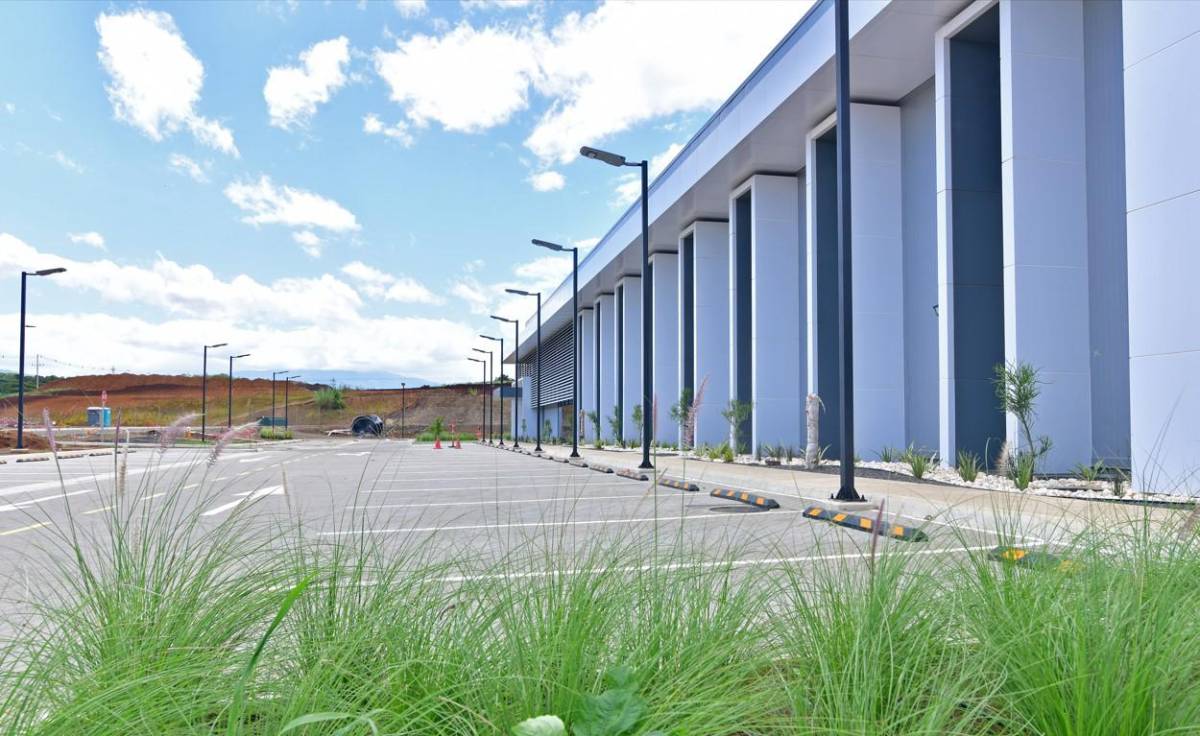
Proyectos confirmados de IED en Costa Rica generarán US$103 millones y 2.300 empleos
Los proyectos de Inversión Extranjera Directa (IED), tanto nuevos como de reinversión, confirmados a mayo de este año suman un compromiso de inversión superior a los US$103 millones y 2.300 nuevos empleos para Costa Rica, de acuerdo con los datos de la Promotora del Comercio Exterior de Costa Rica (PROCOMER). La mayoría de estas inversiones provienen de empresas que se establecen en el Régimen de Zonas Francas (RZF), lo que les otorga un plazo máximo de tres años para iniciar operaciones. Varias de estas firmas ya anunciaron públicamente sus inversiones, tal es el caso de Coca Cola FEMSA, Promed Molded Products, Viant, Harland Medical Systems, entre otros.
Ver más
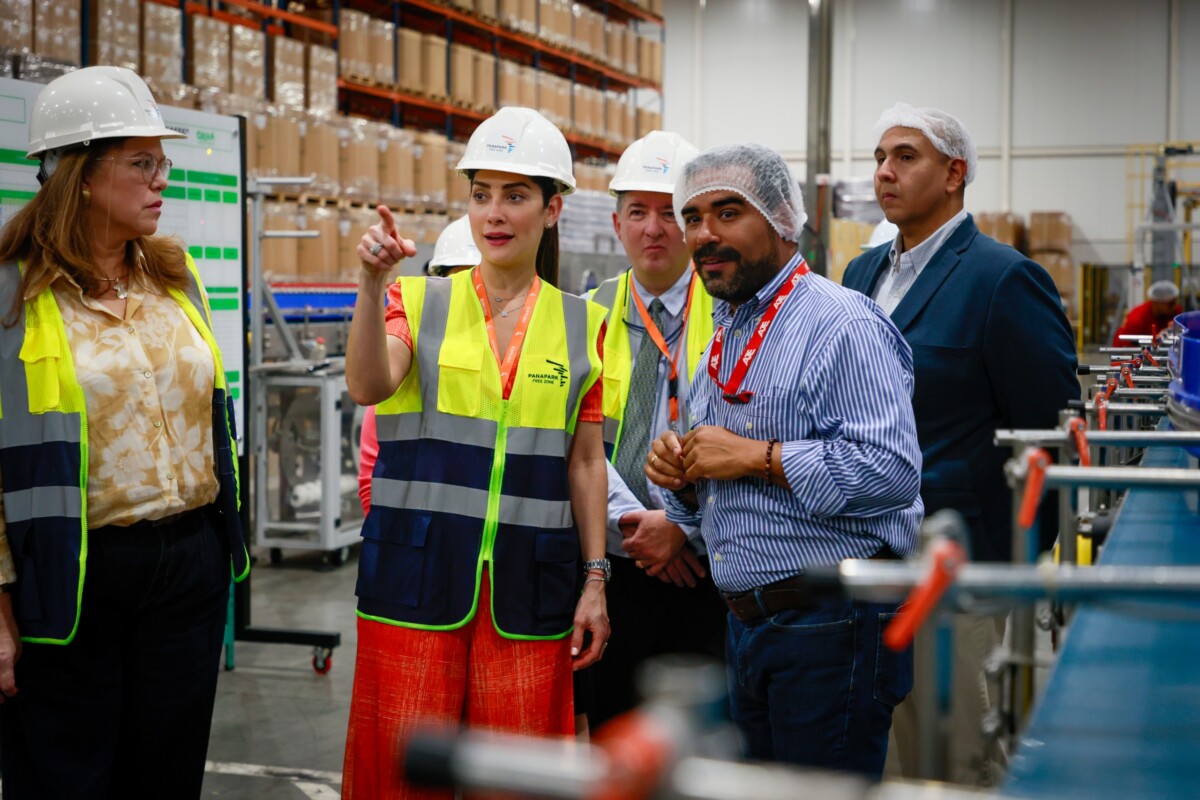
MICI impulsa zonas francas en Panamá con inversiones millonarias y generación de empleo
Como parte de su estrategia para fortalecer el régimen de zonas francas y atraer inversión extranjera directa, el Ministerio de Comercio e Industrias (MICI) realizó una visita institucional a Panapark Free Zone y la Zona Franca del Istmo, ubicadas en el corregimiento de 24 de Diciembre. Durante la jornada, la viceministra de Comercio Exterior, Astrid Ábrego, junto a su equipo técnico sostuvieron reuniones con líderes empresariales del sector manufacturero y logístico, con el objetivo de conocer de primera mano sus operaciones, necesidades y planes de expansión. “Nuestro objetivo es acompañar al sector de zonas francas, optimizar procesos y seguir generando empleos, atrayendo más inversión y posicionando a Panamá como un hub regional de alto valor agregado”, destacó Ábrego.
Ver más
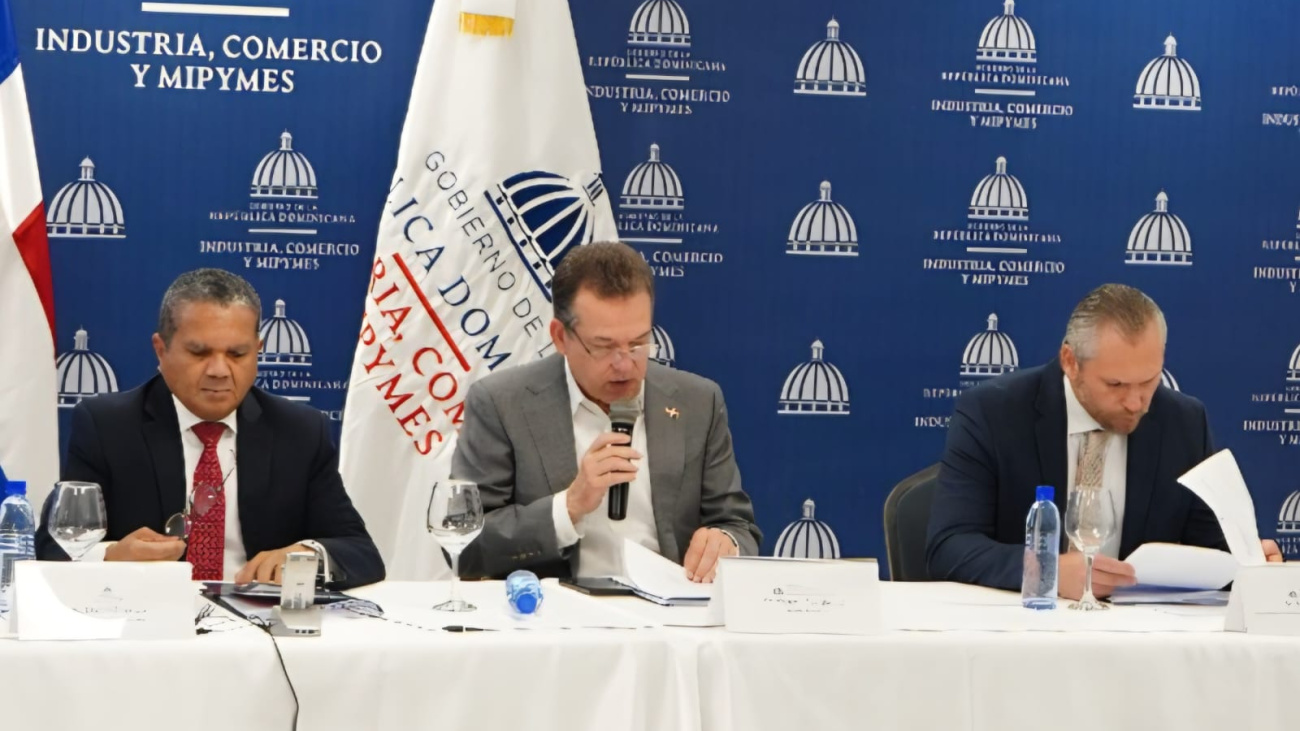
CNZFE aprueba permisos de instalación de nueve empresas y dos parques de zonas francas
El Consejo Directivo del Consejo Nacional de Zonas Francas de Exportación (CNZFE) aprobó los permisos de instalación de nueve empresas nuevas de zonas francas, con una inversión total de USD 27.54 millones. Estas empresas, que estarán dedicadas a diversas actividades productivas, proyectan generar 1,160 empleos directos en el país. Daniel Liranzo, director ejecutivo del CNZFE, indicó que las empresas aprobadas tendrán un impacto significativo en diversas localidades del país, incluyendo Santo Domingo, Santiago, La Altagracia y Hato Mayor.Asimismo, fueron aprobados los permisos de instalación de dos nuevos parques industriales, los cuales estiman realizar una inversión de USD 10.5 millones y generan 1,600 empleos.
Ver más

